#if this isn't in fact a world that had a lot more mythology about the endless floating around
Explore tagged Tumblr posts
Text
Playing Veilguard and making it everyone's problem
I am going to rant, and I will rant a lot, and there will be spoilers, so if you're not afraid of them and the game criticism, buckle up.
Elves and their gods
I am absolutely fucking livid about how Veilguard handles the Dalish and elves in general. The events of Trespasser made it clear that the elves started flocking over to Solas, including the elves working for the Inquisition:
After the events at the Winter Palace, elves left the Inquisition under mysterious circumstances, as did elven servants across Thedas. None could say where they went, but those who believed the Inquisitor's story about Fen'Harel wondered just how large the Dread Wolf's forces were... and what the ancient elven rebel had planned.
Solas had multiple spies working for him during Trespasser, and If I remember correctly, there was even a note, left by one of the elves - they were anticipating the great change and the return of the elven glory. Anyways, the established fact is that: elves learned that the stories about their gods were true and one of them now was going to restore the world as it used to be. At least, this is how they interpreted it (maybe, this is the version Solas didn't debunk) and so they started following him.
You might think, the Inquisitor and their allies are going to have a huge problem with breaking it to elves that their chosen leader isn't going to make things better and that their gods don't love them. Especially, if the Inquisitor is a human or anyone who isn't an elf. You'd imagine any attempts will end in failure because of course elves aren't going to listen to outsiders trying to explain their own culture and gods to them. You'd imagine that their trauma caused by centuries of oppression and discrimination will make it impossible for the Inquisitor and anyone else to make them see the truth.
You'd assume anyone who tries to find and stop Solas will be sabotaged every step of the way, feeling themselves horrible for having to clash with people desperate for a chance of a life without injustice - even if it means burning the rest of the world down.
You'd imagine that they will only change their mind if/when they see the harm done by Solas' actions and get to witness their gods true intentions by themselves - which would lead to a massive crisis of faith and schisms happening between elven tribes and groups.
You'd imagine will get all this incredible drama in the Veilguard, with elves initially resisting the group's attempts to stop Solas, then trying to pull themselves together after the revelation. You'd assume there will be zealous groups doubting Solas (because the Dreadwolf is a liar and a deceiver) and intending to use him to actually free the elven gods. You'd think this is how actually some of them get out.
But, NOPE. Not only Solas ends up working alone, with none of his followers throwing themselves at Rook and the party to buy him time, but also all elves now hate Solas because...Varric said so?
You meet a group of Veil Jumpers (elves devoted to exploring their ancient culture and history, learning more about their gods and reclaiming their heritage) and their leader instantly calls Solas an asshole. Based on WHAT?
I get it, Varric had met them before and told them that Solas was Fen'Harel...
(needless to say if you expect players to find and read other media in order to make sense of the events in the game, you are doing something wrong)
...but why were they so fucking calm about it, instantly eating up the "yep, he's bad" version? Even if the Dread Wolf is vilified in the Dalish mythology, wouldn't they be curious about what that means? Wouldn't they have gotten tempted or excited by the implication that other gods exist too? They weren't told the full story - why the fuck did they instantly accept the "Solas is an asshole" narrative? Especially when Solas comes with a promise of a world for the elves like it was meant to be?
WHY?
The Veilguard has no response for that. I guess, Dalish never cared about their history and traditions, and city elves were dandy about Alienages and oppression, so they easily believed some randos over a literal god promising a new, better world.
I don't even play Dalish, but I love their plotline and arcs - and I was bracing myself for some downright painful choices and conflicts during the next Dragon Age. But it felt like the writers couldn't be bothered with developing such a nuanced narrative, so they just waved it all down with "Nah, elves are chill now and they never really cared about their gods in the first place".

#dragon age: veilguard#bioware critical#veilguard critical#and i'm just scratching the surface of how badly this game handles the lore and plots developed in the previous parts#also varric's “solas is an asshole” narrative would crumble as soon as these elves would have met solas#he is the charismatic kind and compassionate type of leader they would want to believe and follow#i'll keep expanding this list of nitpicks as i go
464 notes
·
View notes
Text
One small addition to the meta, if I could OP? Show!Hob also has the fact that the sleeping sickness ended within days of his stranger returning.
Show!Hob has a much better chance then Comics!Hob of getting to learn about, or guessing at Dreams imprisonment given the missed 1989 meeting. Hob to might concede that one potential option was that Dream couldn’t make the date (or of course, Dream might actively sharing that fact as a courtesy/explanation. Though obviously, we can’t assume that, as we saw no part of their meeting past the very start).
Sandman Meta: Hob has exactly zero way of figuring out who Dream is (before they reunite)
More than once in a fic I've written from Hob's POV I've had readers note their astonishment that Hob has not yet figured out Dream's identity, even if Dream does not reveal it himself.
Even in fics of mine where Dream reveals his name, like in Giving Sanctuary, I have Hob be slow on the uptake when it comes to the extent of Dream's powers, even things like being able to enter and control dreams, and the reason I do this is carefully considered and based in the fact that Hob would have no way of knowing who Dream is or by extension what he can do.
So I kind of want to take a step back and address in detail just how actually impossible it would be, objectively, for Hob to figure out who Dream is in a world that doesn't have The Sandman comic for him to read to figure it out.
This is, of course, because, from a Doylist angle, Neil's "Dream of the Endless" is not based in any single mythology. Indeed, Dream as we know him is cobbled together from at least three or more different mythological figures, none of which combine to actually form the "Dream of the Endless" we see in the show or read in the comics. The Endless are completely made up for the comic and the Sandman, Morpheus, and Oneiros are all from wildly different mythologies and none of them actually overlap to form the complete picture of who Dream is as an entity in the Sandman show or comic.
So even if someone straight-up told Hob that the person he meets is the Sandman, Morpheus, or Oneiros (btw, there is no singular figure of "Oneiros" in Greek mythology) he would still not be able to put together the full picture of who Dream is. Even if he's given the name "Dream of the Endless" to work with, those words combined don't mean anything on their own if you don't have what an Endless is filled in, because it was made up entirely for the comic. (Of course, a fanfic author absolutely could make up such a book for their fic but it would be a creation for that fic, serving a purpose within that story like to tip Hob off, though I think it's entirely reasonable to make up a book in the Sandman world that goes into detail on who the Endless are. The Magdalene Grimoire, btw, is not that book. It only talks about Death. Death is a figure in many mythologies including the Christian one, but Dream is not. Even Burgess needs the Corinthian to tell him who Dream is in the show, and he's an occultist.)
Couple all of this with Hob's personal experience with Dream, encountering him as part of a wager with Dream's sister Death to see if Hob could bear a life of immortality, you get far more clues that would send him hurtling off into a totally incorrect direction before you'd get anything close to the truth, if we assume only the books available in our world are available to him.
So the reason this is a bit of an irritation for me that there's this idea that Hob has "all the clues" to figure out who Dream is because it smacks of a logical fallacy.
Basically, it's easy to see that the answer to a complicated math problem is "obvious" if someone just hands the answer to you. But challenging people to actually solve it themselves could be quite a bit more complicated. And in this complex formula solving for "Who the fuck is Hob's mysterious stranger?" there's actually so many blank X's of unanswered questions that I genuinely think there's no way for Hob to solve this equation without someone giving him the answer.
Let's go through this systematically, using just what Hob knows as observed on screen in the show.
1389 - a pale man in all black with a ruby at his throat approaches Hob's table and challenges Hob to meet him there in 100 years. He then smiles enigmatically and leaves.
That's it. That's all Hob has to go off of. He never sees Death, he has no idea about the wager. As far as he knows, Dream gave him immortality. It would be the most logical conclusion given that the day before Hob didn't have immortality and the day after, presumably, he does.
1489 - The only confirmation he has is actually seeing Dream there in 1489 and the first thing he asks is, "How did you know that I'd be here?"
Dream does not answer him. Hob takes a few stabs at guessing his identity which reveals his Christian European context: are you a wizard, or a saint -- to be clear, these are two types of human magic users that make sense to Hob for his context. The only other figure he can think of is The Devil. He doesn't ask if Dream is a pagan god or a faerie, he assumes a man with arcane or divine magic, or the Devil.
Dream says that he's not the Devil, much good that would do if he was a Devil who could just presumably lie to Hob, and says he's interested in Hob's experience and implies that he will grant him another 100 years of life. He is sarcastic and unimpressed about Hob's wonder at the world. He doesn't even actually show much interest in Hob being in the printing business. He only shows a spark of interest in Hob's continued desire to live, and then immediately takes off.
1589 - The only new information Hob gets this year is 1) Dream is supremely uninterested in food or the wealth Hob has earned, or his family, and 2) puny little Will Shaxberd, a crap playwright with no shot at becoming anything more, suddenly becomes a famous playwright. He would eventually become a renowned playwright in his day but keep in mind, Shakespeare didn't actually become mega famous centuries after his death. In his day, many people thought other playwrights like Marlowe were better.
My point is, from this Hob doesn't necessarily get even the pieces to determine that Dream likes art. It might seem obvious to us because Dream is Prince of Stories, but that's not the offer Dream gives Shaxberd. He just asks if it is Will's will to create dreams to spur the minds of men. Yes, we know that Dream wants Will to make dreams for him, but in Hob's context, Dream is just asking what Will would sell his soul for, just like he overheard Hob saying he had no intention of dying. From this perspective the only strong conclusion Hob can draw is that Dream grants wishes.
From this, Hob could conclude that Dream is a djinn/genie, or perhaps a faerie, but there is absolutely nothing to indicate he's associated with dreams or literature directly besides a mention of creating dreams nested in the context of asking Shaxberd what he wants, giving him a supernatural gift much like the one Hob believes Dream gave him.
At this point, the domains of Dream's power are very muddled for Hob because he doesn't know Death gave him immortality. So as far as he knows, Dream can give immortality AND make an amateur playwright into the greatest writer who ever lived. Putting these two things together does not bring you naturally to the domain of dreams by any stretch.
(I will note here, that in Giving Sanctuary, I had Hob learn that "Death" is Dream's sister before he learns Dream's name. There, his initial conclusion is that Dream must therefore be Famine, one of the Four Horsemen of the Apocalypse and the one known for wearing black (and not eating seems like a clue with Dream too) my point being that having another, small piece of the whole puzzle still would probably send him flying off in the wrong direction given his cultural context.)
1789: The next time Hob gets any hint that Dream has powers is with Lady Johanna. He uses his sand to show her her, "old ghosts". Note, she does not fall asleep but rather begins to hallucinate.
The Sandman myth has its origins of Scandinavia and it is first written down in in "Der Sandmann" a context that Hob might have access to, if he's very well read, in the early 1800s. By the way, the description of the Sandman in that book bears a striking resemblance to the Corinthian, because he eats the eyes of naughty children, and very little to Dream beyond the use of sand in his magic.
There is absolutely nothing to link the Sandman to Morpheus the Roman God of Dreams, who was made up entirely by Ovid in the Metamorphoses and never mentioned anywhere before that. That's because Neil Gaiman was the first to link those two mythological figures.
And on that note, there is no Oneiros attested to in Hesiod. The mention of Oneiros is actually to the "Oneiroi" an entire tribe of dreams and nightmares who are the children of Night (Nix). There's Hypnos (Sleep) who is the brother of Thanatos (Death) but that is about as close as we get to the Endless in any other mythological source besides the comics. And again, Dream does not put Johanna to sleep, he makes her hallucinate.
1889- Again, there is precious little to go off of. Dream is tight-lipped as ever. The only thing he gives away is that Lady Johanna later helped him with a task, a fact Hob is visibly annoyed and I daresay jealous about, and when he lashes out he refers to himself as, "One such as I."
But "One such as I," only reveals something Hob already knew: that Dream thinks highly of himself. That doesn't actually reveal that Dream is even magical, he could just be nobility or a powerful immortal magic user and refer to himself that way. Hob already knows that Dream is magical, and immortal, and probably some sort of high born or aristocrat. He's probably known that since 1389 given how Dream was dressed and given that giant fuck-off ruby (which actually might make Hob, in that day, wonder if Dream was a relation to the Black Prince)
That's it. That is the grand total of everything Hob has seen of Dream.
Hob in the comic will eventually admit, in The Wake, that he figured out who Dream was on his own. But this is after Seasons of Mist when Dream toasts him in Hob's dream and Hob wakes up with the impossible bottle of wine on his bedside. He has another encounter too with Dream where Dream eventually accedes to Hob's request to make the men who killed Audrey, his dead girlfriend, know who she was. Presumably, Dream makes them dream of her.
So Hob in the comics by the time we get to The Wake has more to go off of to make the link to the Lord of Dreams. Hob as we see him in the show, has had much less to go off of.
Even if you give Hob one piece of the puzzle, like one of the names like Morpheus, or The Sandman, or Oneiros, that still doesn't help give him the whole picture. The word "Endless" would be meaningless. He would have to have read at least three pretty obscure books that span a period of 2,000 years (between Hesiod and Der Sandmann) to get the three books that Neil primarily drew from to combine these figures into the Dream of the comic.
Look, my point is, unless someone gives the answer to Hob, and explains the full extent of what the Endless are, he's got little to go off of. Arguably, not enough at all to solve for "X" as to who Dream is, even if he's given more pieces. This would be a tough problem to solve.
#the sandman#love this meta. have complex feelings about how certain assumptions get too set in stone or headcanons build off each other the longer#a fandom continues#like personally I dearly wish both Hob and Dreams other lovers that werent Elanor Calliope or Nada (with very occasional Titania references#for some reason? But no other later season mentioned comics lovers? Wheres the love for Peggy/Jim? Alianora? Killa?)#because it's hard to do it justice when Dream is a 30 something instead of an immortal whos had many lifetimes worth of ''the one''s that#turned out not to last forever/fall apart horrifically#(but like. i get it mostly. either they were in the show or they weren't.... uh except Titania for some reason. lol)#that being said#personally I did/do assume that the world of sandman contains far more references to the endless to Morpheus and the mythology surrounding#them in general#then our world does. I mean... idk comics wise this is a universe that has superman and other bullshit. it's clearly not our own 100%#Not the strongest argument but there is that one random immortal who shows up on the same ship as Hob and name drops Morpheus specifically#''past time for all sensible men to be in the arms of Morpheus'' i.e. ''asleep''. something like that iirc#not the first pull i'd expect from some immortal indian king wandering around the early 1900's#if this isn't in fact a world that had a lot more mythology about the endless floating around#OR it doesn't have more mythology then our world and this dude in particular and/or Hob are specifically concerned with Morpheus#they got Morpheus on the mind#were either treated with more weight or at least being consistent and if it's say a human AU or some such they all get a bit less weight
499 notes
·
View notes
Text
OMG!?!??! I WANT TO TALK ABOUT THIS SONG (and AU), RIGHT NOW!!!
(By Lydia the bard
TINKERBELL VILLAIN SONG - Fall Little Wendy Bird Fall | Song by Lydia the Bard and Tony | Animatic
The title^)
youtube
First of all the cover art is AMAZING, Tink is SO pretty, the sparkle and lines on the wings, her grin, HER HAIR, HER EARS, HER DRESS,
Also, "Fall Little Wendy Bird Fall" is a great title
Now the video itself and its lyrics, i really REALLY want to just compliment every single frame of this video, its so beautiful, so well done, its like it was blessed by The Muses of greek mythology,
Okay so the lyrics at 0:45
"You dont seem to quite understand what is at stake,
This messed up little family that i had to make"
Not only is this line so beautiful with the way her voice sounds, its pretty much a nod to the fact Tink and her friends kidnapped peter pan and the lost kids to keep her and her friends alive
(0:55) \/
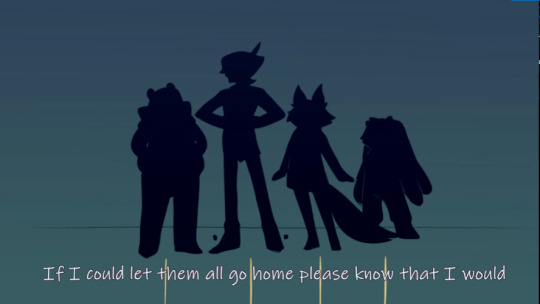
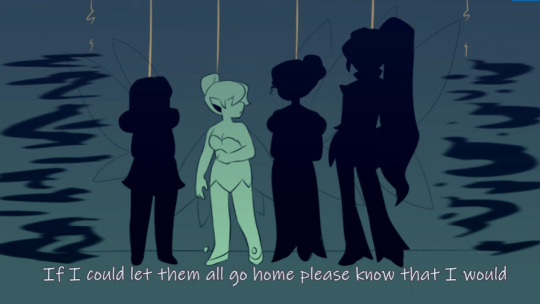
"If i could let them all go home please know that i would
But it'd do more harm than good"
Just Tink expressing her guilt that she and her friends kidnapped the lost boys so that they could keep existing, but like, JWHSEAJKHWED, she ofc doesn't want her or her friends to die, and since people are slowly not believing in fairies anymore, they're slowly going extinct, ALSO, Fawn and Silvermist are DEAD, so yeah, that messes with someones head
AAAALSOOOO, i LOVE their silhouettes, the height and weight differences instead of them all having the same height and weight like in the movies, plus, i LOVE that despite not looking like how they do in the movies, you can probably still tell who is who,
ALSO
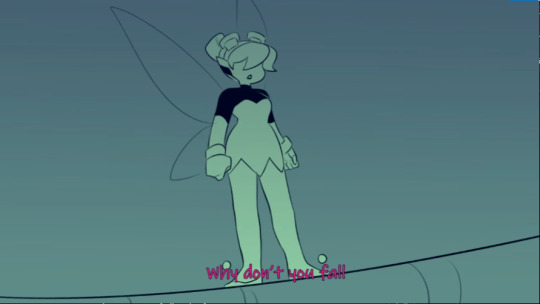
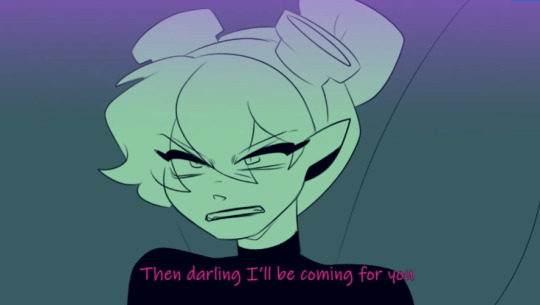
Even if it wasnt intentional, i like how in kinda faraway shots, Tink has a more cuter roundish look, while in closer shots shes more edgy and more intimidating(? if that's the right word), kinda showing how others view her (kinda?) as a cute fairy, maybe underestimated, but yknow, close up, shes plotting to kill a child
(1:15)

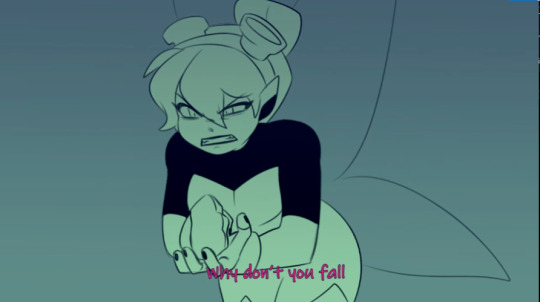
I love how Tink is gesturing in this scene, cause 1. It conveys to the audience what she wants from the lost boys and 2. Canonically, when fairies talk, people usually just hear jingling of bells, so shes gesturing because shes also conveying what she wants to the lost boys
1:23
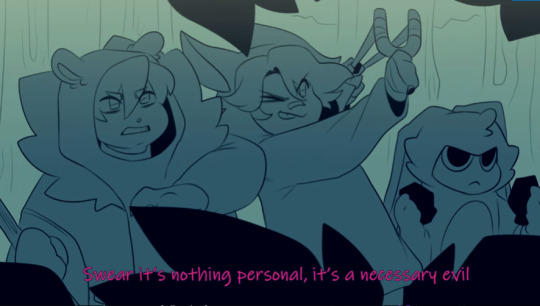
"Swear its nothing personal, its a necessary evil"
I just love this line because it is a necessary evil, she needs the lost boys and peter pan in neverland to believe in fairies so that they exist, and Wendy is pretty much a threat, since she makes the lost boys want to grow up with families,
Also, the lost boys look so cute in here, i cant remember their names tho, one is holding a slingshot, aiming at wendy, one is holding rocks , and one has a stick , so Tink just told these children to assassinate Wendy, or at least attack her.
1:35
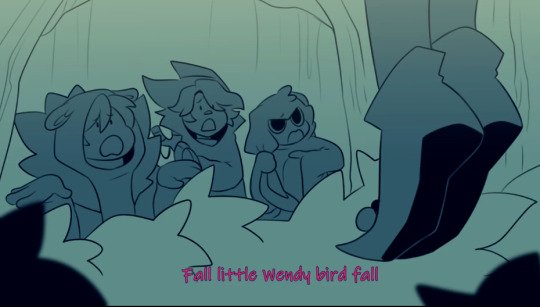
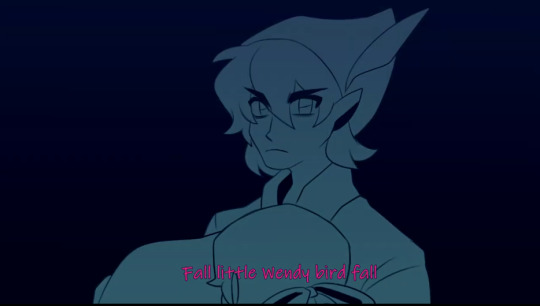
I love how the kids explain that Tink make them do it, and Peter Pan just glares at Tink, and i love that I'm pretty sure that Peter isn't mad/doesnt blame the lost boys
As seen in this scene where Pete is smiling and stuff at the Lost Boys and/or at Wendy
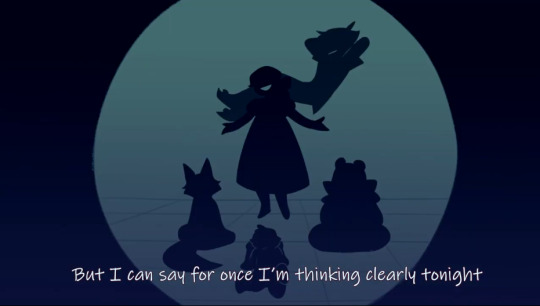
1:55
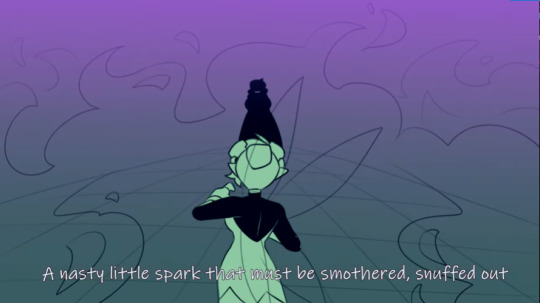
I love how Tink refers to Wendy as a "Nasty little spark" because, a spark can turn into a fire, damaging a lot of stuff and people, pretty much saying that Wendy has to be snuffed out before she causes a fire,

"Setting fires inside my house is just not allowed"
Pretty much referring to the fact that Wendy, the spark, is creating a fire, aka, making the lost boys want to grow up and go back to the real world, making them not believe in fairies anymore, thus, making her and her friends die, which is, not allowed.
Also. the fear in Tink's eyes is so fear, her expression is on point, the mix of concern and fear is just, so beautiful, also i love her pointed ears
2:17

First of all, this screenshot does not do justice to the actual design of the mermaid (siren?), cause they are AMAZING, BEAUTIFUL, GORGEUS.
Also, the fact that Tink is persuasive enough to convince someone to kill Wendy in such a short amount of time is impressive, and the fact that the mermaids agreed so quickly is also impressive,
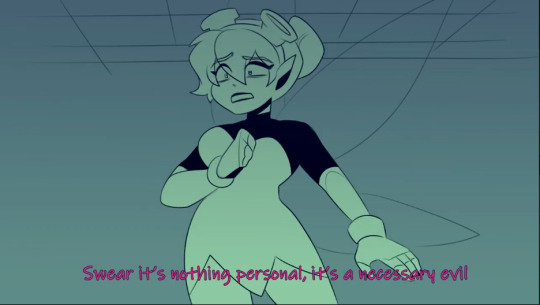
When it failed, the absolute horror and shock on Tink's face? Shes horrified that another plan of hers failed, and shes scared that her friends might die, like, wow
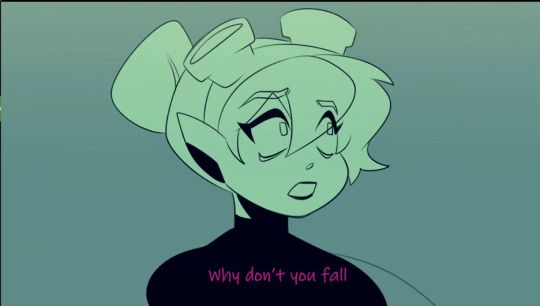
The despair on her face is just so...asdjwoaijdoiwajd
3:38
The fact that Peter Pan (i cant even give him a nickname cause Pete sounds different and P.P. is just wrong and Pan is just A Thing), first at the gust of wind that blows away the pixie dust (which keeps the ship afloat) he covered his eyes, maybe cause the dust or his hair in his eyes, then he looks at Tink in anger and shock and probably some confusion, then looks at Wendy, in concern and fear,
Theory: Pan knows that, since Tink doesnt want the lost boys to leave, and he knows that gust of wind was from the fairies, and Tink's dislike and hatred to WEndy, that Wendy was probably the only one not going to be saved, which is why he only looks at her and tries to save her (that or he's a SIMPPPPPPP /j)
3:50

The fact that you can see Wendy screaming??? Chills,

And the black screen right after, signalling Wendy's death is just amazing
Anyways, overall, what im saying is
THIS SONG IS AMAZING GO CHECK IT OUT, GO CHECK OUT THIS PERSONS CHANNEL, THEY HAVE GOOD VILLAIN SONGS, THEY EVEN HAVE ENCANTO!!!!
#Lydia the Bard#Villain Song#Villain Songs#Fall Little Wendy Bird Fall#song analysis#Though i did little analyzing but idk#GREAT SONG#TInkerbell#?#Youtube
268 notes
·
View notes
Text
There's definitely a conversation to be had about the presentation of real historical figures in historical fiction, I think. As both a professional historian (PhD student ���🏾😔) and a man of color, I'm a bit more sensitive to this than a lot of people, and for me it always comes down to the question - what real harm is being done here?
And that's where I think OFMD does well enough for me to be comfortable. If you look at the fact that the show is based on real-life terrible people who did awful things and participated in the slave trade and you don't wanna fuck with the show, that's completely understandable, but I find it so much more palatable than (for the easy comparison) a piece of media like Black Sails (I actually like Black Sails, believe it or not, but there are a lot of things about how it treats many of these same figures that make me uncomfortable).
Now, yes, OFMD is hand-wavey with the slave trade in the Caribbean. None of our main characters own slaves or directly reference the slave trade (again, this is a romcom, I'd be shocked if they did). For me, this works alright for two big reasons. First, there are things that I think you can include in a romcom and have it still be a romcom, and a thoughtful, respectful depiction of the slave trade would take the show firmly out of romcom territory. Second, the show doesn't pretend racism doesn't exist, it treats its characters of color as three-dimensional people, and we always get the last laugh when racism is depicted. The very first episode sets the scene by having racist English Navy officers demean and call a Black character "slave" and they immediately get their asses kicked for it. Compare this to a show like Black Sails, where one of my main criticisms is how we're expected to sympathize with characters who actively participate in the slave trade and own slaves.
My other thing here is the people OFMD is working with are both heavily mythologized and not treated with any degree of historical accuracy. Many of our characters who are famous pirate names you might know are nothing like their real-world counterparts (take pirate queen Zheng Yi Sao, who wasn't even born yet when the show takes place). We know so little about any of the real people, anyway, that OFMD doesn't even bother trying to get anything right.
Like I said, I'm a professional historian and I love working with the golden age of piracy. That's a big reason I was drawn to this show in the first place! And if there's one thing I know, it's that pirates have been made into legends. We know very little about the real people, and in pop culture they're just myths.
The characters in OFMD are basically fictional characters working with the loose mythology based around the real people.
Now, back to my big thesis here: are the real, awful people benefitting in any way from OFMD taking these characters and making them into the good guys? Realistically, no, I'd argue. Most people with any critical thinking skills know that real pirates were not good people. Many people think Blackbeard is a made-up generic pirate character as it is. I've been to the real-life Stede Bonnet's grave site (NOT for the show, this was years before it aired and I was visiting the archives there to see the trial documents for a research project), and the historic marker there says he was "brought to justice." No one is wataching this show and thinking "oh those real guys must have been pretty great dudes!" because it's not about those real people.
This show isn't trying to change your perception of the real people, it's showing you fictional characters with the same names. One of our characters is runnig around in crocs, this show isn't trying to teach you about history or the real people and it's obvious.
If you're put off by the premise, I get it! But I just don't buy the idea that OFMD is putting anything harmful into the world just by existing.
531 notes
·
View notes
Text
The beauty of Axel's original character arc

"I thought a lot about that. Should I leave him as he was or should I bring him back again? However, when I considered the people that Lea wants to bring back, his existence plays a big role. I think Lea has successively become a key character." (Tetsuya Nomura)
Nomura said that he debated whether to bring Axel back to life, or to leave him as he was. The fact that he wasn't sure meant that his KH2 character arc must have felt complete somehow. So, I'd like to take a look back at Axel's original storyline in KH2 and why I liked it so much. I thought his death worked very well as a beautiful and satisfying (albeit more bittersweet) ending to his story. In many ways, I found it to be much more poignant than his storyline in KH3.

“Is that how to treat a best friend on coming back from completing a long mission!” “I don’t recall becoming your best friend.” (Another Report: Roxas—Somewhere in Time)
Roxas was closer to Axel than any of the other Organization members. But he obviously yearned to have best friends his own age. That is why he was best friends with Hayner in his dream world, even though he didn't know them in real life. And he didn't even remember Axel. In other words, Roxas and Axel were not really best friends. In the short story that was included with the Japanese version of KH2FM+, Axel was the one who was insistent on using that label.

Hayner: Well, I doubt we can be together forever. But isn't that what growing up's all about? What's important isn't how often we see each other, but how often we think about each other. Right?
The whole concept behind Nobodies was that they had no hearts, but they still had their memories from the time when they did. So, the writers undoubtedly had some idea of what each member's backstory was like. In the original KH2, the writers chose not to explicitly tell us anything about Axel's past. But based on his behavior, we would be able to ascertain that he probably had a best friend when he was still a human. However, he was already a grown up. His summer vacation must've ended a long time ago. He could no longer be with his best friend, and he needed Roxas to fill that void.

Roxas: Organization XIII… they're a bad group. Naminé: Bad or good, I don't know. They're a group of incomplete people who wish to be whole. To that end, they're desperately searching for something.
One of the biggest themes in KH2 is that of duality. In Hinduism, the universe is said to be made up of two complementary opposite forces called Shiva and Shakti. Shiva is the masculine force and is known as the destroyer or transformer. He is associated with chaos, darkness, and the element of fire, which symbolizes purification. Shakti represents light, order, and the feminine nurturing aspects of the universe, giving birth to new life. She is associated the element of wind, which symbolizes life energy and creation.

Axel's moniker is "おどる火の風". It translates to "Wind of the Dancing Fire" or "Dancing Fire's Wind". This is my theory of what the deeper meaning was. One of the most famous depictions of Shiva is that of him dancing in a ring of fire. This version of him is known as known as Nataraja. The rhythmic movements of the dance are said to cause storms and destruction. And there's a backstory to the dance.
In Hindu mythology, Sati immolated herself out of intense devotion to her husband Shiva when her father insulted him. When Shiva learned of Sati's death, he was overcome with grief, sorrow, and uncontrollable rage. Shiva carried Sati's lifeless body on his shoulders and began to perform the cosmic dance of destruction.
In KH1, the reports mentioned how Ansem amplified "storms" in the subjects of his experiments on the darkness of the heart. The kanji used (嵐) can refer to a literal storm or it can also be used metaphorically to describe an intense emotional state. I suspect that the original idea in KH2 was that Axel's best friend was killed during an experiment. And this event caused Axel's heart fall to darkness, turning him into a Nobody. It's probably the reason why Axel was so delighted to assassinate Vexen by setting him on fire.

Axel: Let's meet again in the next life. Roxas: Yeah. I'll be waiting. Axel: Silly. Just because you have a next life…
The imagery of Shiva dancing within a circle of flames represents the eternal cycle of birth, death, and rebirth. Shiva performs the dance and destroys the universe, but this destruction is eventually followed by rebirth. His lover Sati was reborn as the goddess Parvati and reunited with Shiva as his other half. Their combined form represents unity in duality and cosmic balance. In KH2, Axel did not think he was going to be reborn. And that was the basis of his storyline.

Naminé: We may not have homes. But there is someplace I want to go… And someone I want to see… Axel: Same here.
Nobodies had a strong thematic association with death and the afterlife. In KH2, Naminé was the ghost girl living in the haunted mansion. In KH3, she was an incorporeal star in the Final World, the metaphysical place where people go when they have strong attachments and cannot pass on to the other side.
A Nobody was the spirit that went on even as its body faded from existence. They were very similar to the Unsent from FFX, which was another game written by Kazushige Nojima. Axel was created because his human-self had strong sentiments. He desperately wanted to be with his best friend forever. And this unfulfilled dream, ironically, kept his body and soul tethered to the realm of light.

Kairi: Maybe…waiting isn't good enough. Axel: My thoughts exactly! If you have a dream, don't wait. Act. One of life's little rules. Got it memorized?
When Axel asked Kairi if she wanted to "see" Sora, he was referring to her meeting him in the afterlife because he was planning to kill them both. A similar form of wordplay was also used in the Japanese dialogue. His intentions were made apparent by his outstretched hand. He wanted Sora to become a Heartless again. So, he probably planned to accomplish that the same way he became a Heartless.
(Japanese Translation) Axel: We're quite similar, aren't we? Both of us want to meet our important friends. Don't you think we're like comrades?
In the KH universe, when a person dies, their heart returns to the light of Kingdom Hearts. Since Axel didn't think he had a heart, he thought there would be nothing left of him to live on after his empty vessel was destroyed. Even if he wanted to die and be reborn to meet his best friend, he couldn't. He was driven by intense loneliness.

Some Kingdom Hearts fans think there's something romantic between Axel and Roxas and that Disney stopped that from being made explicit. Is that true? Have there been things Disney have stopped you from doing? Nomura: In terms of the relationship between Axel and Roxas, we never intended anything like this and this is actually the first time I ever heard of it! We don't want to openly negate how the fans have come to enjoy the characters, but it was not something the creative team intended. Axel and Roxas are the best of friends and that's their primary relationship.
Axel's intense yearning to see Roxas once more made fans question his orientation even back in 2005. Akuroku was quite a popular ship back in the day and many players saw romantic subtext on Axel's part. I do agree that Axel is easily read as queer. But the creative team was not trying to imply that he was in love with Roxas. I think it was his human best friend that he was really in love with, and Roxas just reminded Axel of him. When he was with Roxas, he felt like he was with his best friend. And that's why he wanted to die by his side.

(Japanese Translation) Axel: When I was with him, it felt like I had a heart too. That kind of feeling... I feel it with you too... The same...
When Axel said, "the same", he was referring to how Sora reminded him of Roxas. But I believe that we were invited to read between the lines and wonder if he was also referring to a human best friend that had already passed on. Ultimately, Axel's original KH2 arc was not about being together with Roxas forever. Roxas merged with his other half and became whole. He would live on within Sora.
In some Hindu traditions, "Sati" also refers to the act of a widow willingly participating in a self-immolation ritual on her deceased husband's funeral pyre. It was seen as an expression of devotion and loyalty and also an act of peerless piety which was said to purge her of all her sins. The widow would achieve spiritual liberation (moksha) not only for herself but also for her deceased husband. This meant that both would be freed from the cycle of death and rebirth (samsara). The widow was thought to be reunited with her husband in the afterlife, enjoying an eternal spiritual existence with him.
To help Sora reunite with Kairi, Axel self-immolated. After he died, Nojima probably envisioned that he would meet his dead best friend again, who was waiting for him on the other side. He had attained moksha, which represents the final goal of human existence in Hinduism, where the soul is liberated from the cycle of samsara. And that's probably why Nomura wasn't sure whether it was better to bring him back to life or to just leave him as he was.

"I never thought he would grow as much as he has. We originally planned to have him exit upon being defeated by Roxas during the opening of KHII, but all the staff, myself included, were strongly inclined to have him keep playing an active role after that. It's possible he will have things to do in the future, too. I tried to put that into his 'see you' line in KH2 FM+." (Tetsuya Nomura)
When KH2 was written, the writers probably had not envisioned a preexisting relationship between Saïx and Axel. But after its success, they decided to expand on the Organization's backstories, and came up with that idea. Isa was based on the original concept that was implied in KH2. Axel did have a human best friend, and that loss had a profound influence on his relationship with Roxas.
If Axel's human best friend was supposed to be literally dead in KH2, then him only being Norted is a major retcon, yes. But it was a retcon that would allow for the eventual reunion of Axel with his best friend in the physical life. Like the Phoenix rising from the ashes, he could resurrect him from the dead. And that was the underlying idea of making Lea a Keyblade wielder in the first place.
Lea and Isa's backstory is one of the missing links of the KH series. By all means, it should have been depicted many years ago, in the defunct Birth by Sleep Volume II. This is a shame because it left their relationship extremely underdeveloped, and their reunion was largely glossed over in KH3 as a result. Because of this, I thought Axel's storyline in KH3 fell flat, and I thought that his ending in KH2 was more impactful. But I may change my mind if we finally get to see more of Axel's long overdue backstory in Missing Link.
39 notes
·
View notes
Text
Iliad? In my She-Ra cartoon? It's more likely than you think


Some of you may know that og Hordak and Prime (from the motu franchise) also have "normal" names. Sooo, you know how long it took my dumb ass to realize that Hec-Tor and Anillis are spelled and pronounced suspiciously similar to Hector and Achilles - u know, the heroes from Homer's Iliad??*
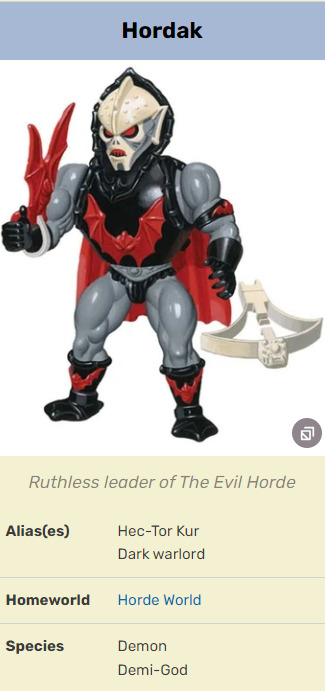

I have no idea if this lil trivia fact is an intentional reference or not or if this specific choice of characters is supposed to mean anything at all. But it means everything to ME
Because why Horde Prime of all people was given the name of a hero?? Why Hordak, his brother, was given the name of his enemy and his victim? And why do these names fit the 2018s versions of these characters so well?
!I'm not an expert in ancient literature or greek mythology/history or anything close so my knowledge and understanding of the Iliad and its characters is literaly on the surface level! I'm only making this post cause looking for parallels is fun c:
Horde Prime as Achilles
The mythological hero, Achilles was often reffered to as the beast, or pure element, force of nature, or even a star. Not a person, not a human being

He was an exceptional fierce hero known for his passion and determination, but also his arrogance and stubborness. Noble yet often selfish and capricious, understanding and caring yet cruel
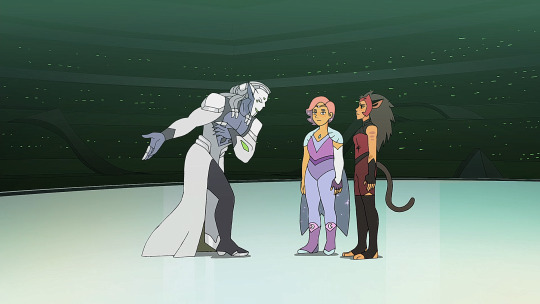
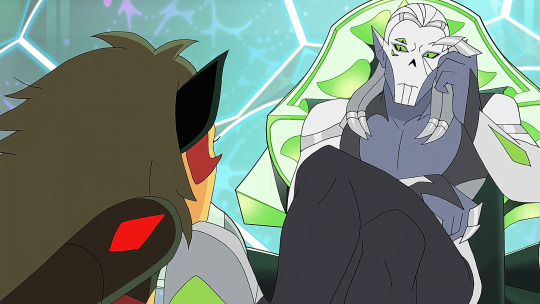
The one who possesed arcane knowledge about the fate of humanity, and with it - about his own destiny
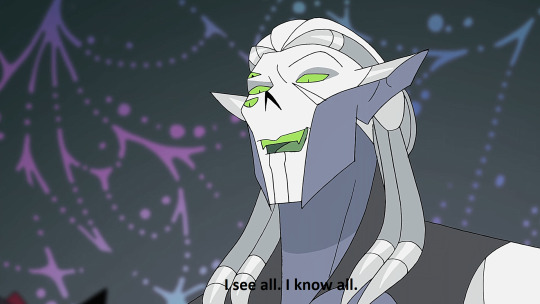
The one protected by the gods, who was so close to godhood himself, whos body was immortalized in the river Styx

And yet, one small part remained vulnerable, a part of him stayed painfully human. And once it was discovered and aimed at, he was as good as dead
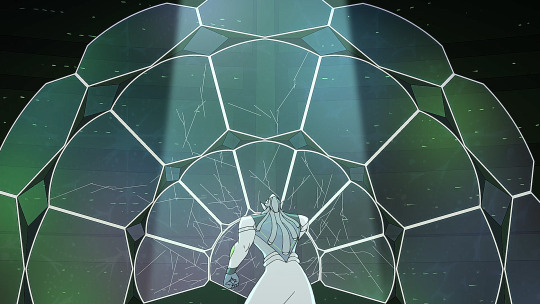
The one who was driven by horrific almost animalistic rage. Rage that came from pain and grief. Rage that came... from love?
Achilles lost someone dear to him and this loss blinded him with desire for revenge, made him chase after the warrior who took his loved one from him. He refused to let go, not even letting go of Hector's corpse
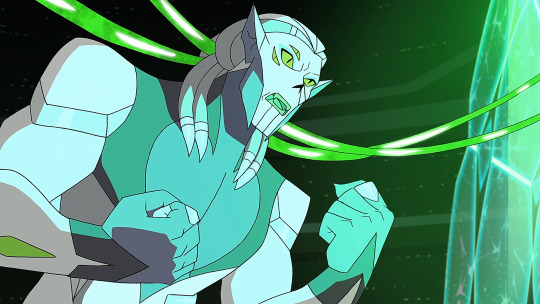

Hordak as Hector
Described as "deserving of love" Hector was a great warrior, deeply devoted and loyal to his home and his cause
A brave unstoppable leader who nonetheless made many mistakes by letting his human emotions and traits make him act unwise, arrogant, reckless and naive

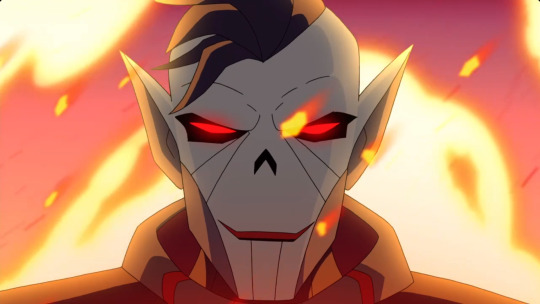
The one who believed in his gods and trusted so many, but in the end was only deceived and lied to. And this lie was the reason why Hector could not escape Achilles' wrath

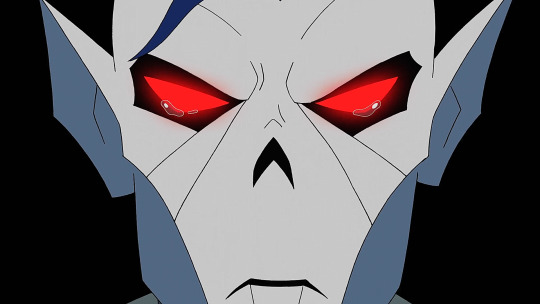
The cause and the victim of Achilles' rage. His personal enemy, the one who killed his beloved. The one who feared Achilles so much yet in the end stopped running away and faced him in their first and final duel

The one who lost everything. Doomed to die tragically by Achilles' hand. Hector didnt even beg for mercy, only for his body to be treated with respect, but Achilles could not be reasoned with. Instead he dragged his corpse behind his chariot for days on end, not letting him rest. Not letting Hector return home to his family
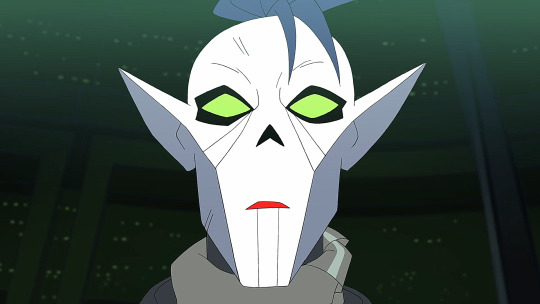

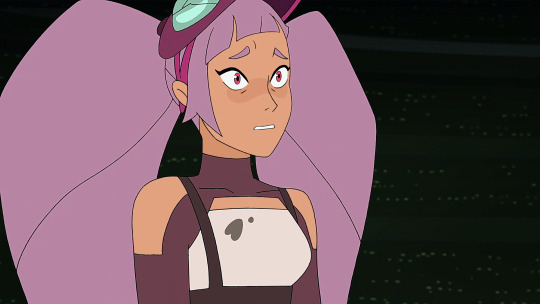
But wait, who is Patroclus of this story?
Funny how this part of Achilles' story fits Hordak a lot more, since it was him who lost a dear friend and it was him who was consumed with grief and fury. Thus, in a way, Hordak is both Hector and Achilles and Entrapta is his Patroclus. But what's Prime's deal then?
We can always enter fanon territory and headcanon that Prime might have lost someone a long time ago and grief turned him into a monster. Could be a lover, could be a friend or family, could be his old self even. But then what Hordak had to do with it? Why he became the target of his rage?
Perhaps in this version Patroclus isn't even a person. An idea of perfection and control. Hordak's imperfections ruined the image of his ideal world where everything goes his way, ruined his own image, the facade of an all mighty god who could not make a mistake or create something less than perfect. In a sense Hordak's defect and later betryal killed everything Prime was working on and was trying to achieve, everything he believed in
Perhaps Hordak is both Hector and Patroclus. A brother Prime loved so much, but only when he was still a perfect obedient doll with no name. But once Hordak began to change, showing his personhood and becoming harder to control, becoming unrecognizable, HP could not accept it. In his mind Prime lost a brother, and someone who named himself Hordak was his murderer
Again, I have no idea why the hell they chose these names for their aliases. Achilles and Hector were in no way pure or flawless people, but... they were still heroes. Does this say anything about the characters of Horde Prime and Hordak or their dynamic? Especially their motu versions**?? Or was this just a reference for the sake of reference? (oh maybe im only seeing things and its not even a reference??) They could've chosen an iconic pair of tragic brothers instead idk on the surface it'd seem more fitting :/
But i'd rather keep my tinfoil hat on and think that it was all intentional, because I'm LIVING for the implications regarding Prime's humanity .з.
**Motu fans and experts if you're reading this, i'd love to hear your thoughts on this, you have to know more than me!
#spop#horde prime#hordak#shera#spop meta#the galactic horde#spacebats#ramblings#*just wanna clarify that the realization only hit me like a month or two ago#so all the possible parallels between them and Anillis and Hec-Tor from my Kur twins au are purely accidental lol#and no my boys dont become enemies!
102 notes
·
View notes
Text
Ruthlessness is Mercy
Alright, so now that I've got my incoherent ravings and memes about Epic: the Musical, the Vengeance Saga out of the way, I have some THOUGHTS about the musical symbolism in this new album! Speaking specifically about Get in the Water.
Because really, this song is a reflection of Ruthlessness, the song in the Ocean Saga where Odysseus faces off against Poseidon for the first time.
These parallels can be seen even from the opening lines of each song. Think about Poseidon's opening in Ruthlessness:
"Odysseus of Ithaca Do you know who I am?"
(Okay, so this is technically the end of Keep Your Friends Closer, but still, it's Poseidon's introduction). But recall Poseidon's behavior and attitude here: he's loud, he's proud, he's bombastic, he's in-your-face. He addresses Odysseus by his name as an intentional callback to when he taunted Polyphemus. Contrast this against the opening line of Get in the Water:
"There you are, coward."
There's a familiarity here that isn't present in Ruthlessness. Of course there is, Odysseus has narrowly evaded Poseidon's wrath once before (twice if you count Storm), and he's had 10 years to stew on that failure. Both of them know what this is about, it's just about putting an end to unfinished business. Poseidon is not proud, he is not overly aggressive. He's much calmer here than he was in Ruthlessness.
This is even reflected in the music. Ruthlessness features a piano playing in triplet and trumpets to accompany Poseidon. The god of waves has come to bring retribution on the one who dared to harm his son. On the other hand, Get in the Water, features a much more synthetic sound, oscillating back and forth. This motif is used a lot in Epic to denote the presence or usage of godly powers (think Calypso's reveal of her nature in Love in Paradise). Furthermore, the piano is much slower, more menacing, more methodical. Poseidon is not acting in a heat of rage. As I said before, he's had a long time to think about this.
Poseidon's choice of words punctuates this point as well. He has a point to make in Ruthlessness. He's not just here to kill Ody and his crew, he's here to explain exactly what it is that they've done and why they deserve to die for it.
"I've gotta make you bleed, I need to see you drown But before you go, I need to make you learn how Ruthlessness is mercy upon ourselves"
It's not just about the fact that Odysseus got into a fight with Polyphemus. It almost seems that Poseidon couldn't care less about that. After all:
"I mean, you totally could have avoided all this had you just killed my son"
Poseidon's problem is not that Ody hurt his son, those things happen in the world of mythology. No, his issue is that Ody refused to finish the job. Instead of granting Polyphemus a quick death, he instead elects to "spare" him, leaving him to suffer a lifetime of agony to live with his blindness. Poseidon goes on and on about this (it is the main theme of the song after all).
But in Get in the Water? It's all about salvaging Poseidon's reputation and finishing what he started.
"I've got a reputation I've got a name to uphold So I can't go letting you walk or else the world forgets I'm cold"
By this point, Poseidon has killed hundreds of Odysseus's men and subjected him to horrible torment. By any normal metric, the debt has been repaid. Ody didn't kill Polyphemus, so strictly speaking there's no need to kill him necessarily. The lines listed above almost seem to be a callback to this line from Monster:
"Or does he keep us in check So we must respect him And now no one dares to piss him off?"
Anyway, by the time of Get in the Water it's no longer about avenging his son for Poseidon. In fact, Poseidon makes no mention of his son throughout the entire song! Granted, Poseidon threatens Telemachus with the same fate that Odysseus gave to Polyphemus, but this strikes me more as incentive for Odysseus than anything else. This is all about finishing his business with Odysseus, and Poseidon's command to Odysseus reflects this:
"Now get in the water"
Poseidon says this so nonchalantly. He almost sounds as tired of this feud as Odysseus is. In fact, it's not until the second half of the song that Poseidon regains a portion of the fury that he exudes throughout the entirety of Ruthlessness. And this culminates in the same command in both songs:
"Die"
And here's where the parallels get particularly interesting to me. Because both outbursts follow an attempt by Odysseus to assuage Poseidon's wrath. In Ruthlessness, he appeals to his men's relative innocence in the matter:
"Poseidon, we meant no harm We only hurt him to disarm him We took no pleasure in his pain We only wanted to escape"
Here, Poseidon's reaction is a realization that Odysseus has completely misunderstood the very nature of the interaction. He realizes that Odysseus is arguing out of ignorance, and so the reply does nothing to enrage him. He's not having fun with it like he was before, this is just something he has to do. And so:
"Ruthlessness is mercy Die"
Compare this with the same interaction in Get in the Water. Odysseus once again tries to encourage Poseidon to put the past behind them and move on. To forgive and forget.
"We're both hurting from losses So why not leave this here and just go home?"
Here again, Poseidon does not get angry from Odysseus's suggestion. He merely offers a defeated:
"I can't"
Misunderstanding Poseidon's quietude for passivity, Odysseus attempts to press his advantage, insinuating that, even if it seems impossible to Poseidon, it is still possible for him to learn how to forgive Odysseus.
"Maybe you could learn to forgive?"
And here's where Poseidon really snaps. Because for ten years, he's been waiting to kill the man who blinded his son and had the audacity to escape his retribution. Odysseus broke into his son's home, killed his sheep, and stabbed him in the eye. And now he thinks he can get away without getting his due consequences?
"No Ruthlessness is... Mercy upon... Ourselves Die"
In Ruthlessness, "Die" is a statement of fact. It's a sure thing that Odysseus will die, so Poseidon puts very little emotion behind it. It's a command, surely to be obeyed. In Get in the Water, however, "Die" is an exclamation of fury. Poseidon screams it out because, in that moment, he wants nothing more to kill Odysseus.
In Ruthlessness, Poseidon begins in a state of almost glee but ends in a state of resignation. He isn't enjoying it, but still it has to be done. In Get in the Water, however, Poseidon begins with a sense of quiet fury. There's no rage, no wild temper, he's just finally getting to do what he's waited to do for ten years. And yet, he ends with a greater feeling of anger and hatred towards Odysseus than is shown even in Ruthlessness. Because Ody was supposed to have learned his lesson. He was supposed to know better now. And yet he still wants to offer mercy, and expects his foe to do the same.
So yeah.
#and then poseidon got comeuppance for rejecting that offer in Six Hundred Strike lol#anyway#bit of a long post#but I was thinking about this literally all day#epic the musical#vengeance saga
22 notes
·
View notes
Text
My analysis of the Sedna scene in Episode 6 of Dead Boy Detectives
(as a mythology nerd)
The myth of Sedna was my introduction to Inuit mythology so it has a very special place in my heart and because of that I'm going to try my best to give people a better understanding of her story!
Since Sedna has multiple different "origin stories" so I'm just going to focus on the most popular one(?) and the one I know the best
Also, I understand that this is a repurposing of the myth and that obviously there's going to be some changes for time and story reasons and that this scene wasn't meant to be a lesson, but this is all in good fun and I'm going to analyze it from that lens anyway :>
It's important to note that considering the fact that Inuit mythology is far less popular than other mythologies, there's a lot less information surrounding and what is there is is a lot more vague
With all that being said, let's jump in!(...get it?)
------------------------
"One day, long, long ago, a terrible storm raged over land and sea. A girl and her father were in peril."
While this definitely isn't inaccurate, it leaves a lot of context out. So let's start at the very beginning:
Sedna was a beautiful young woman and a skilled huntress. As such, she received many marriage proposals but refused every last one. Her father eventually grew frustrated by this so when one day, a mysterious hunter arrived at the village, Sedna's father eagerly offered him his daughter's hand. Sedna consented as the hunter promised to provide her and her family with meat and furs. Not long after they married, her new husband whisked her off to an isolated island where he revealed that he was, in fact, not a man but a bird(crazy right?). Now, Sedna was very understandably very unhappy on the island. Not only had she been tricked but since her husband was a bird, he couldn't exactly provide the meat and furs he promised. Instead, she was forced to eat the fish he caught everyday. Things took a turn when Sedna's father decided to visit her on the island(the reason is rather unclear but I believe there's a variation where her screams and wails of agony were so loud that they reached her old home which was what what prompted her father to go check on her and one where he simply wanted to see her again). After finding out that he'd been fooled and learning of Sedna's current situation, her father killed his son-in-law and took Sedna back on his boat.
"The man thought if he sacrificed his daughter, he may be saved by the greater gods."
If you think his motivation for murdering his daughter seems a bit far-fetched, we're in the same boat(...get it?). His reasoning in the original myth makes a bit more sense. See, what happened in the original was that Sedna's father thought sacrificing her would save him because her husband's bird family/friends being angered by his death, followed the two to sea and began beating their wings really hard, causing the storm. He thought that by sacrificing the "cause" of their loved one's death, they'd be appeased and forgo flapping their wings.
[Her father throws her overboard, Sedna clutches onto the side of the boat, and he proceeds to chop her fingers off by slamming his paddle on them repeatedly.]
I'd have no nothing to say about this bit if not for the use of the paddle. In the versions I've read, he always uses a knife to cut them off. Perhaps a version where he used a paddle exists, but if there is, I haven't heard it.
"But seeing such cruelty, the great gods forsook the father, and took pity on the girl, turning her into Sedna, the goddess of the sea."
I'm definitely overthinking this but the use of the word great here confuses me because if we take the "great" as meaning considerably above average in terms of domaninance, I'm not exactly sure who Mick is referring to because there isn't really a divine ruler in Inuit mythology? Most of the gods were simply more powerful spirits. The Inuits believed the world was created by a raven(or a raven-man or a raven with a man inside or a raven who could turn into a man, it really depends). Sometimes he's depicted as trickster with a penchant for mischief while other times he's depicted as a compassionate creator and lover of the world. Either way, I don't think he's really regarded as the leader? I've heard some stories where Anguta(god of death and the underworld) is the creator and supreme being, but I doubt he's the great god being referred to as he's sometimes attributed to being Sedna's father and the one who kills her in other versions of her story which would make him turning her into a goddess in this one a bit odd. Chances are, I'm reading too much into this and they simply chose to incorporate "great" as a way to show they're worthy of respect, but it's still interesting to think about!
"And on that day, my brothers and sisters were born."
10/10. No notes. Sedna sinks into the bottom of the ocean and her fingers become all the sea's mammals just like in the original.
------------------------
That's all I have to say, I think. Overall, this exercise was really fun. Please let me know if I shared any incorrect information. I look forward to doing more analyses in the future!
#i was genuinely so excited when i watched this scene for the first time#dead boy detectives#dbd#dbda#sedna#inuit mythology#mythology#in which epher is shamelessly garrulous#ramblings
30 notes
·
View notes
Note
About mythological ships:
What is your OTP? (favorite romantic/sexual relationship)
What is your BROTP? (favorite platonic relationship)
What is your NOTP? (the opposite of OTP)
You can say more than one in each category if you want
Sure, but it's going to be loooong and there might be some hot takes ahead
OTP
🔹️Patrochilles:I don't need to say what's obvious; but these two own my house, my dog, my soul
Like it's not so much that I think they're perfect for each other, is that I think even when they aren't perfect for each other they still love the other a lot
Besides, I think these two are very interesting Characters on their own right, so a relationship between the two is also very interesting to think about
🔹️Menelaus/Patroclus: I'm sorry, but I know myself and let me tell you, when I have a favorite ship, it always has the character that I don't ship with anyone but the other character, and the character I ship with everyone. So I don't ship Achilles with anyone but Patroclus, and I ship Patroclus with everyone.
So, Idk, I just thought that they must be very close for Menelaus to risk his life to get Patroclus' corpse back. And maybe one day Menelaus will be fed up with Helen and Patroclus will be angry with Achilles and maybe they help each to have a good time 👀
🔹️Briseis/Patroclus: I actually like this as an unrequited love scenario, I imagine Briseis loving Patroclus because he's the only man that has been kind to her in a while, and she doesn't know if it's really love, or if it's her emotions hanging to the one of the few sources of comfort she can find. Like she isn't sure if she would love him if they had meet during times of peace instead of war
Meanwhile, Patroclus just doesn't love her in that way, but he does loves her like a sister, and doesn't want to hurt her feelings either
🔹️Paris/Patroclus: listen, listen, LISTEN, I already said that I ship Patroclus with everyone, and in this case I just thought "Oh, I like Paris, I wished he had someone who didn't treat him like shit and appreciated him" and my brain immediately went "You know who would be amazing at that? That's right, Patroclus because if he can put up with Achilles' shit, he can put up with Paris' shit"
So basically I just want Patroclus to hug Paris against his tits and call him a good boy
🔹️Odysseus/Diomedes: For this I'll explain that I have the headcanon that both Odysseus and Penelope are AroAce and in a QPR
Meanwhile Diomedes is a baby gay who doesn't even know he's gay
So I have the headcanon that Diomedes has a very big crush on Odysseus, and Odysseus of course is like "Oh, this can be useful" and is basically just using Diomedes
🔹️Diomedes/Sthenelus: Like Briseis and Patroclus, I like them more as an unrequited love situation
I imagine Sthenelus being in love with Diomedes since they've met, but Diomedes just doesn't feel the same, he loves his friend, but not like Sthenelus would like him to
🔹️Agamemnon/Clytemenestra:
They are the same, to all the people that says that Agamemnon deserved it, so did Clytemenestra when Orestes killed her
Like, Clytemenestra was angry because it was HER daughter, but later she doesn't has any problem in killing someone else's daughter (Cassandra) So I know for a fact that had Agamemnon and Clytemenestra change places at Aulis, she would've done the same to Iphigenia
So this is a case of unlovable hand in unlovable hand lol
🔹️Peleus/Menoetius: I have nothing to say about this one except that for me is what if Patrochilles but old man yaoi
🔹️Helen/Andromache: this but in a toxic Yuri kind of way where Andromache feels guilty for cheating on Hector but not enough to actually stop and Helen is in for the fun
BROTP
🔹️Odysseus&Penelope: controversial opinion, but like I said, I think they both are AroAce that one day found each other and immediately there was a mutual understanding. So basically they're in a QPR
They want to be together because for them there's just nobody else in the world who can understand them like the other, and sometimes friendship is more powerful and long-lasting than romantic love
🔹️Achilles&BigAjax: I just like them being cousins
I have this headcanon that sometimes during battle Achilles would get up on Ajax' shoulders and then use him as a platform to jump and attack the Trojans lmao
🔹️Automedon&Patroclus: If Patroclus had to be Achilles's nanny, I think Automedon was Patroclus's nanny lmao
Like in my headcanon Automedon is a couple of years older than Patroclus, so Patroclus always goes to him when he wants advice or to complain about Achilles. And Automedon is more than happy to help him and be his older brother
🔹️Menelaus&Agamemnon: I think Agamemnon unironically cares a lot for his brother, and would try to protect him and do everything he can for him
🔹️Hector&Paris: I imagine these two have the relationship of "I hate you, but you ARE my brother"
🔹️Achilles&Odysseus: I love the idea of these two being friends.
I imagine at first Odysseus was like "I'm going to get close to Achilles so I can use him later" but then the dad instincts won, and he started to see him not as the best of the Greeks, but as a young man. And he starts thinking about that maybe Telemachus would be like him one day when he grows up
So he gets too attached and gives him good advice in different things, and of course Achilles doesn't listen to him at all, but he does appreciate the effort and they end up being close friends
🔹️Briseis&Iphis&Diomede: I just love the idea of Achilles' enslaved women being friends and supporting each other, they didn't have much, but they did have each other 🥺
NOTPs:
🔹️Achilles/Briseis: No, never, nope
Like, maybe if every freaking retelling of the iliad wouldn't try to force them to be together with the less chemistry imaginable and making Achilles forget that Patroclus even exist which in turns makes the whole story of the Iliad have no sense, I would like them more, but no
🔹️Achilles/Agamemnon: Short answer? No. Long answer? Nooooooooooooooooooooooooooooooooooooooooooooo
🔹️Poseidon/Patroclus: I'm sorry guys, I don't mess with this. Is just that personally I think the gods just see the humans as toys for their entertainment. So I imagine that if there was any relationship between these two, Poseidon would pretty much treat Patroclus as his personal sex toy, And I like my boy Patroclus too much for him to being used like that
🔹️Apollo/Cassandra: similar to Achilles/Briseis and Poseidon/Patroclus, with the added bonus that I think Apolla was a bitch with Cassandra. Like you can argue that Achilles deserved Apollo’s hate, but not Cassandra
#ramblings#tagamemnon#greek mythology#the iliad#trojan war#I'm tagging everything idc#patrochilles#odypen#odydio#achilles#patroclus#agamemnon#menelaus#helen of sparta#andromache of troy#hector of troy#Paris#paris of troy#briseis#odysseus#odysseus of ithaca#penelope of ithaca#diomedes#diomedes of argos#Apollo#clytemnestra#big ajax#automedon#cassandra of troy
30 notes
·
View notes
Note
orpheus and eurydice vs wolfstar?? i NEED to hear your thoughts!!! (as a classics nerd marauders fan i can't believe i didn't think to draw parallels between ships n mythology sooner)
Reblogs, this ask and an ask from @transwolfstar has officially convinced me.
I've always gone back and forth on who was who in this scenario, but I've come to the conclusion recently.
Orpheus is Remus, Sirius is Euridyce 100%.
Orpheus is what I believe Remus would have been if he hadn't been attacked by Greyback. He grew up loved, and as sheltered as he physically could have been from the world until he went to school. Orpheus was one to see the best in the world, what the world could become. He was a loner through and through, which is so Remus coded tbh. Remus is connected and grounded, which I fully believe Orpheus was, based on the way he used his musical talents.
Euridyce being Sirius is something I'm so genuinely passionate about. He sees the world for what it is because he's been through such extreme hardships. Euridyce and Sirius are kindred spirits through and through. Not only that, but in the original myth Euridyce was a nymph. The way Sirius' beauty is so heavily emphasised throughout his mentions in the books and films (to the point that I lowkey love the being part veela headcanon) is so Euridyce.
This leads me on to THEIR LOVE. Orpheus falls head over heels for Euridyce, but not just because she's a minor deity, because of her. Because she's his soulmate, his everything, the person he's willing to literally go to the end of the earth for. This is so fucking paralleled by Wolfstar. They love each other so genuinely unconditionally (according to all canon that I read too much into and a lot of fanon), and Remus is willing to fight, even kill an old friend, with very little real confirmation/context, at the drop of a hat for Sirius.
Remus loses Sirius for the first time tragically in the same way Orpheus loses Euridyce (on their wedding night). For both, it isn't permanent, in spite of the fact that they believe it will be. Euridyce is in the underworld, which is known to be a genuinely traumatising afterlife that causes you to lose all sense of identity, and Sirius is in Azkaban, which feeds on your positive memories and forces you to lose all sense of self.
Orpheus seeks out and cares for Euridyce so deeply, using his skill set (his music) to save her from the underworld. This is a bit of a stretch, so you can completely disregard this one, but Remus is a more subdued character (because he grew up in more hardship than Orpheus, moulding his character into a more reserved one), making his staying with, looking out for and understanding Sirius without words his own variation of this.
All of the waiting; both Orpheus and Remus knowing that every second in their own respective torture was stripping them of their soul, their identity. Then, when they're finally reunited, they get no time together. Orpheus has to lead Euridyce, walking for days, without looking back, without ever knowing if she was really following him, if the gods had tricked him, if she had been taken or hurt at all on the way back. Remus and Sirius are immediately thrown back into a war, with no way to keep one another safe. Every day was one of uncertainty, and they had Harry, the child of their dead best friends, to look out for every single step of the way.
They both end in tragedy.
Orpheus, when he's out of the final stretch, the cave, turns. He looks for Euridyce. Whether it's on instinct, because she trips, because he believes he's been tricked, or because he could hear her crying the entire time and finally reached his limit, he turns around. He loves her so much that he searches for her, and he loses her because of it. Remus, however, allows Sirius to walk into the trap. He hears the panic, he knows that Sirius will go straight after Harry, will walk straight into the trap on his own, and brings the Order. He tries to keep Sirius safe. His problem is one of looking away. Of being so caught up in the war, that he can't even register what is happening until it's over. Until Sirius has been taken from him, even though he did everything he did to keep him safe. For both of them, it looks like they're going to make it, that everything is going to be okay, until it isn't. One painfully human moment, and they're both gone. Orpheus because he doesn't trust his circumstances and looks back, Remus because he trusts them too much and looks away.
Still, there was never an ounce of blame appointed to Orpheus or to Remus. The poem Metamorphoses by Ovid puts it perfectly. “Eurydice, dying now a second time, uttered no complaint against her husband. What was there to complain of, but that she had been loved?”
Sirius is taken through the veil. Remus doesn't know if he is truly in the afterlife, or if he's trapped in between, suffering helplessly and wishing for relief. Wishing that he could take it all back, or that he could just die. He can't even go after him and find him. He has to hold Harry back, hold him together. Orpheus doesn't know how long it will take Euridyce to lose her mind in the afterlife. For everything that he fell in love with to be stripped away, for her to become nothing but a being of eternal suffering. He attempts to use his music to get back to the afterlife, but he cannot.
Orpheus is eventually killed, as is Remus. Both too soon, both not soon enough.
Right person, not enough time.
It's absolutely heartbreaking, and it's what I spend my every waking moment thinking about.
#THEYRE JUST SO#thank you for validating my delusions today xoxo#wolfstar#remus lupin#marauders#sirius black#young marauders#atyd marauders#james potter#peter pettigrew#remus x sirius#dorcas meadowes
32 notes
·
View notes
Note
So if Superman is Moses and Captain America is David, do you think that Spider-Man is Job?
He's always miserable, with suffering piled upon suffering and loss piled upon loss. But he always has faith in the goodness of humanity and the righteousness of his duty. He maintains his faith throughout all of his trials, and that's what makes him a hero.
(I was thinking about how Judaism and Xianity see G-d differently, and more specifically how they see faith and obedience to G-d differently. In Judaism faith isn't about obedience, and G-d is often an allegory for the world just as the world is often an allegory for G-d — at least that's how I interpreted the fact that 90% of our prayers are thanking G-d for creating a specific aspect of material reality. So if the story of Job is, from a Jewish perspective, isn't about unwavering obedience to a single entity but instead about having unwavering faith in the goodness of the world, then it fits Peter Parker almost to a T, right?)
Wow ok I am SO pissed off that I wrote the answer to this for a full hour and now it's just fucking gone because Tumblr decided not to publish it when I hit post. What the very fuck. So I'm going to try to shorten what I wrote a little and hopefully it'll still make sense. But this is a great ask, for real.
Anyway. I feel like something that's been lost in my most popular posts is that my central thesis when it comes to the Jewish nature of superheroes is not that there's a 1:1 between every hero and a historical, mythological, or Tanakhi figure. The central thesis is, instead, that the very concept of heroism as presented in comics is tied to the Jews who created the genre; it's just very easy to demonstrate these kinds of concepts with direct allegories that have such clear parallels. I actually have a third secret parallel that'll probably never see the light of day, between Magneto and Aher (and like, does anybody even know who Aher is? he's not exactly a well known figure).
One of the reasons I haven't posted this comparison is that it is largely thematic, and therefore requires considerably more explanation, especially for goyim or those who aren't familiar with Aher's story (אלישע בן אבויה fyi if that means anything to y'all). But that's sort of my point - it's much easier to point that Superman is literally Moses and Cap and David serve very similar purposes as characters than to talk about the fact that superheroism is based in Jewish values and traditions: the very idea that heroes are meant to make the world better through action as opposed to sacrifice, the value assigned to every single life (he who saves one life etc), characters becoming better people over time rather than going through dedicated redemption arcs, etc (I can't remember what I wrote here and it's driving me nuts thank you very much for asking).
I gave a lot of context here to the difference between Golden Age and Silver Age writing here but honestly again that took forever and I don't feel like typing it all up, so I'll just point out the basic facts which are that the people creating the comic book industry in the late 30s and early 40s were desperate Jews trying to save their people across the ocean, and also were only about ten or twenty years removed from having lived in the Old Country themselves. Their life and culture was intensely Jewish, they'd grown up in specific Jewish tales. By the time we get to Spider-Man, the situation is entirely different. It's been 25 years of comics (Superman debuted in '38, Spider-Man in '63), and the Jewish foundations of comic books and heroism are already baked in to the genre. Yes, the industry is still overwhelmingly Jewish, but now the separation from a purely Jewish upbringing and Jewish separatism in the Old Country is forty years old. The attempt now is to specifically make stories that haven't already been told - for Spider-Man, the main concept was that there had never been a teen hero before who stood on his own - one that wasn't part of team like the fantastic four, or, more typically, a sidekick.
All these differences actually mean that the coding of these characters is very different. Superman being Moses was intentional; Cap was created as anti-Nazi propaganda. Spider-Man was and is Jewish because he is such a pure example of what Jewish heroism is. He's flawed, he's angry, but he can't help himself from trying to save... Well, everyone. It is, however, important to note that he debuted a long while before Magneto was confirmed Jewish (I don't actually know if he was the first, bc I'm having trouble finding that kind of info easily on the internet, but he's certainly one of the most notable Marvel Jews ever, and he was confirmed as a Holocaust survivor relatively early); it was a whole before Marvel realized you could make somewhat prominent characters Jewish, let alone heroes, and by then Spider-Man was one of their best selling characters, and they're still afraid to this day to alienate readers by confirming him as such.
But moving onto Job - I think I have a very different read of the Book of Job from you, but that's not surprising to me; the Book of Job is incredibly opaque, and I doubt that any two people will interpret it exactly the same. Also, I was raised Orthodox, and I often have very different perspectives on various Jewish things than the typical American Jew. Here's how I view it, though.
Firstly, Job absolutely does not maintain his faith throughout the entire story. Yes, initially he's presented as the most pure person ever, one who has never even been tempted to do a chet (חטא, closest translation is sin; another word would be aveira, which would best be translated as a transgression). And, indeed, it is not his deeds that lead to him losing everything; it is instead Satan who argues to test his faith by taking everything he holds dear away from his - his money, his cattle, his children, his health, his wife.
It's noteworthy, for any goyiche reader, that Satan in Judaism is not the Christian Devil who rules hell. He's an adversary, for sure, but he's more like an opposing counsel; his role is to argue for every human's guilt, especially when someone has committed a terrible aveirah. Forgive me for saying this, but he's essentially a devil's advocate. He can be viewed as the manifestation of yetzer hara on a wider scale (yetzer hara and yetzer hatov are the two natural impulses we all have in ourselves, the first to be selfish or to commit bad deeds and the other to commit good deeds and help others; this is a neutral fact rather than a condemnation of any person, and also I'm massively oversimplifying things here). Also, he's a tattle-tale.
Anyway, back to Job. Yes, at first he does maintain his faith, through the loss of his property, his children, even his health; his wife, before she dies, begs him to curse God, and yet he doesn't. But when she does die, he spends a chapter lamenting the day he was born, regretting that he wasn't stillborn. At first this doesn't look like a direct accusation at God, but it absolutely is, as God is in charge of life and death, but also evidence by the following:
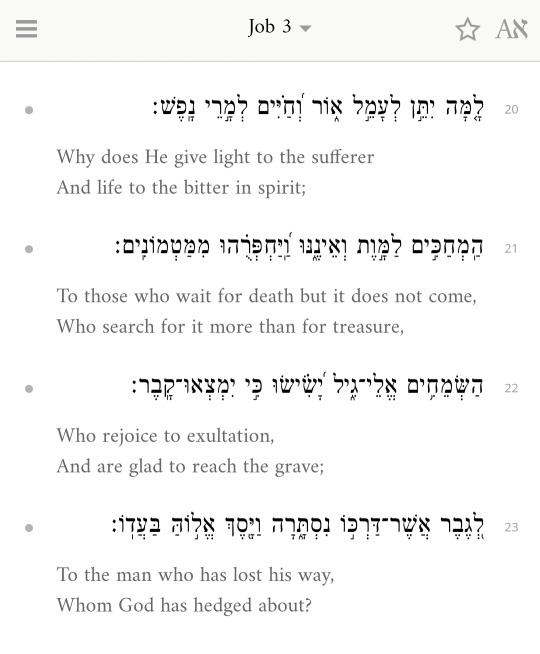
So Job does lose his faith, because as far as he can tell, he has never done anything wrong in his life ever, and yet he has been cursed to grieve everything he has ever had, and he won't even die.
Most of the book is dedicated to dialogue between himself and three of his friends, who come to the common conclusion that he must have done something wrong to deserve this treatment. But Job remains adamant: I did not deserve this.
The general lesson that many people take from this book is that God works in mysterious ways, blah blah. But like... We know, in fact, exactly why this story happened. We saw it! We saw Satan advocate to try Job! So what's the point of the book?
The point is the Job keeps asking "why". The point is that Job hears that God won't forgive his friends, despite the fact they blame him for his misfortune, and he still chooses to pray for them. The point is that he refuses to take what has happened to him quietly. Not accepting that what happened to him was just, but not accepting others' injustice either.
Ugh. I phrased all of this way better in the first draft. I really truly hate this.
Anyway my point is that Job, despite being far richer than the average Jew by the standards of his time, actually is meant to represent a very common situation: what do you when bad things happen. Do you blame yourself, or do you blame God? Do you let other people beat you when you're down, or do you stand up for yourself?
And the thing is those themes are universal, but they're not really related to Peter Parker in particular. In the shallowest sense, the kind I used to compare Cap and David or Superman and Moses, they do not have similar stories or backgrounds. Job has everything, and he loses it all, and he mourns all of it, including the property and money; Peter Parker is working class, has never had enough money, but we see again and again that he views it as a tool rather than a goal in and of itself. Spider-Man's origin is about learning to battle your yetzer hara, your darkest impulses, and we see Peter again and again trying to do his best even though he's often being pulled by his instincts to use his power for selfish purposes. Job does not ever have to learn any such lesson; he never did anything wrong.
The one thing in common between the two stories is that they both believe that every life has value - well, if Peter is being written by a competent authors at least - with Job praying to save the men who are literally called the "resha'im", the evil ones, and with Peter being the little man's hero. But that can be said about most heroes, especially the notable ones. Hell, there's an entire double page spread dedicated to the concept in Batwoman: Elegy. This is more of another indication of Jewish values making their way into the foundations of superhero comics than it is a similarity between Job and Peter.
Also, I feel like I need to be clear. Our prayers thanking God for creating something? Traditionally are simply thanking God for creating something. I'm not saying you can't interpret it as a metaphor for the world if that's what works for you, if that's how you see God, but God was very literal to most Jews for thousands of years, and I could talk for ages and ages about the schools of thought regarding God and the world and Maimonides and shit.
Speaking of which, we need to discuss the fact that Job is literally just some guy. Like he's not a prophet, he's not a leader or a judge, he's just some rich dude who lost everything, mourned it, and then got it all back. I've talked about this before, but one of the foundational ideas of my thesis is that the similarity between prophets having powers (such as Samson but also really any judge being considered a higher authority despite not even communing directly with God) and superheroes invokes Maimonides' claim that the first degree of prophecy is the need to act for the better good, being unable to ignore the ills of the world and doing your best to fix them - that people who incapable of ignoring that urge (and Peter, despite his occasional selfishness, often prioritizes Spider-Man in his life specifically because of that urge) are possessed by the spirit of God. Literal prophecy, communing with God, cannot exist without this base level. So, in effect, Peter is significantly holier than Job.
Anyway. Again, I've definitely missed some points because of Tumblr's fuck up and I intentionally skipped most of the history lesson that gave a lot of context which I didn't feel like typing up again, but this is most of it. Sorry if this wasn't what you hoped for, but this was a really interesting thing to talk about anyway, and I'm very grateful you gave me the opportunity to think it over.
#spiderman#jew tag#jewish superheroes#jumblr#judaism#marvel comics#marvel#peter parker#gail speaks#ask#anonymous
221 notes
·
View notes
Text
So I made a brief post talking about Ruby and Julius Kane being bad parents and uh... here's the essay.
(quick side rant, omg this post is going to be long)
honestly I really should make a series about it, because after really thinking about it, the Kane Siblings have a severe lack of any good parental care in their life. This isn't exactly abnormal in the Riordanverse, but compared to the other series, which have minimal adult characters (that aren’t dead or immortal), the Kane Chronicles have many adult characters and many of the important ones were there to take care of Sadie and Carter.
Yeah that didn't work out.
I mean there's a lot of facets to the Kane siblings relationships with parental figures. From the... interesting and like definitely racist environment Sadie had to deal with while living with her grandparents to Carter's mental state and identity(?) while living with his dad. there is so much I could over analysis, and I'm not a fan of these books to sit around and reread all day so uh, I'm gonna over analysis all of it.
Eventually, but this post will be long even talking about the more aspect I want to talk about with out dragging the rest of the things I find interesting into it soooo.
When first reading the Kane Chronicles, Ruby and Julius actually seem like good parents. they certainly made mistakes but they do love their kids. and even now, I don't doubt they love their kids. It's just an incredibly interesting scenario where the parents, no matter how much they love their kids, are capable of putting the well being of the world first.
And that's the crux of the issue. Ruby and Julius are capable of being excellent parents, but in the situation they were in, they decide it was either the world or Carter and Sadie and they didn't hesitate to choose the world.
In fact, I'm pretty sure Bast said something very similar to this.
Anyway, I'm gonna start with Ruby and Julius's deaths. Personally, I think saying they abandoned Carter and Sadie isn't actually wrong here. I'm definitely not saying someone dying is abandoning the people they love, but it's the way Julius and Ruby both die and how both situations are almost planned.
Now there's not a lot of cannon conformation about Ruby's death, but I, personally, inferenced that Ruby and Julius predicted that it was a very likely scenario that freeing Bast would mean Ruby's death. Or at the very least they definitely knew the dangers of it.
Unlike Julius, Ruby didn't choose to die, but she did put herself in a situation where it was likely. Did she do it with the best intentions? sure. But I find the whole "we had no other choice" thing dumb. Diviner doesn't seem like an incredibly reliable source of information, and unlike the greek pantheon I'm not aware of any being in Egyptian Mythology that specifically controls fate (feel free to prove me wrong here). The idea that they couldn't have done anything else, is kind of absurd.
I mean they convinced Iskander that banning gods was wrong so like? maybe they should have leaned more into that angle.
Also like, they freed Bast, which good for Bast, but doing that sped up the process that allowed Apophis to get free. Ruby had a couple of visions and the two of them spent the rest of they're lives deciding to not just prevent the apocalypse, but to put that burden on their children's shoulders.
Personally, I think Ruby's death was while unfortunate not a surprise to either of them, considering she didn't really seem to try to survive, denying both Isis's and Bast's help. Maybe she wouldn't have been able to handle the power, but like, she could have tried.
Now the bigger Issue I have is Julius's death, cause Ruby's is mostly speculation on my part, I could be wrong, but uh, Julius planned his death. He brought to kids into what was going to be an incredibly dangerous situation. And yes, he did ask them to stay out of the room, but the idea that he used them to help him accomplish this which would leave them without their one living parent while also implicating them of any potential crimes the mortals might decide had happened (which is canon) is horrible.
Arguably, We have no idea weather or not Julius planned on releasing Set, and having Carter and Sadie host Horus and Isis (though those amulet are suspicious). Personally I believe that he had some idea what was going to happen, he's not stupid, but similarly to Ruby's death he decide to take that chance anyway.
Was it for the good of the world? sure. Was it for the good of Sadie and Carter? no, absolutely not.
Even if the situation hadn't thrown Sadie and Carter head first into a deadly quest it would've have severely traumatized them. They could feel guilt for helping their dad commit a crime (especially if they had no idea what was going on) or get himself killed. It doesn't help that Sadie already had abandonment issues due to him.
But more importantly, (not to say his relationship with Sadie isn't important, but his death has a far larger impact on Carter), he left Carter with no one. Besides for maybe Amos, but not only are the two of them estranged but I can't really think that Julius would've thought Amos would take Carter in. And honestly living with the Uncle you barely remember isn't much better than living with stranger, there no one for Carter to go to.
Julius was Carter's single guardian and his only form of stability and familiarity for six years. Do I think he was a good support system of Carter during those six year? not really, but the fact that Julius was willing to throw Carter to the wolves (the government and the foster system) isn't a good sign.
so yeah, the fact that both Julius and Ruby basically went willingly and knowingly to their deaths is kind of abandoning their kids.
I wish I could say (that's a bad way to phrase this) that Julius had planned the quest to defeat Set but I kinda think that would be speculating a bit to much.
Luckily, it's basically canon that they expected Sadie and Carter to save the world so anything I might say about that isn't at all a stretch.
My biggest problem with them though is that neither of them even mentioned the idea of being magicians to Carter or Sadie. And it;'s not because they're to young, because many magicians learn what they are at a very young age.
It could've been to protect them from The House of Life, but considering how violent and uncontrolled they're magic can get with zero knowledge of it it's seems weird that they wouldn't try to teach them how to control it.
(also It was denying Carter and Sadie a large amount of knowledge about their family and even culture to some extent)
Both of the parents fully understood that Sadie and Carter would have to save the world, and yet despite that both of them died without even hinting at Sadie and Carter's abilities.
And there's a big difference between this and what many of the better parents in the Riordanverse did by trying to avoid telling their kids about their heritage. People like Sally and Natalie Chase did it with the intention of trying to protect their kids as long as possible. Sure, it didn't help but they either weren't given a chance to fully explain when the kids were old enough or tried to but it came a bit late (for reasons they couldn't control), Ruby and Julius fully understood that Carter and Sadie would be put in a lot of danger and didn't even inform them of that the gods existed.
Yeah technically most of the Riordanverse parents did that, but there is a big difference in the lives of demigods vs magicians. Telling a demigod about the greek god would also mean having to explain the fact that they being hunted down by monster, which is not something you should tell your seven year old, especially if the real danger is going to come a bit later. Magicians don't actually have a lot of danger associated with them, Carter and Sadie are sort of an exception to that. Like sure, don't tell them about the saving the world part until they're older (Not that Julius even tried) but like tell them about the magic part, my goodness.
Sadie and Carter learned all of this on a really dangerous quest, while trying to save their dad who had planned his death, and in the end they were forced to make a decision between their dad and the world. A decision they didn't really get to make because of the situation and Julius's plan had already made it for them.
Sadie and Carter were shoved into a dangerous world with arguably less help than any other Riordanverse character (excluding the MC series, cause they all died to find out about Norse gods). Like at least the demigods had a camp to go to, Carter and Sadie had a world wide society on their heels, a possessed uncle, a clay person having an identity crisis (which wasn't even over the fact she wasn't real) and a single cat goddess who was forced to ditch like half-way through the book.
Julius legit went "Hey sorry I planned on dying, why don't you almost die to try and save me even though it's useless and than find out me and your mother planned out the worst way to give you the burden of saving the world along with a bunch of responsibilities you don't want *cough* Carter wanting nothing to do with being in charge *cough*.”
I could complain that they also encouraged and helped Sadie and Carter do dangerous stuff (give them a dangerous criminal while knowing he would escape) but unfortunately that’s a common thing parents in fantasy books do.
Like, if they’re kid is already in a dangerous situation and they can’t get them out of it or the kid has to much of a guilt/ hero complex, then better they try to help their kid as much as possible to try to protect them, then forbid them from doing anything which will lead to the kid trying to do everything themselves and getting into more danger.
course the reason Carter and Sadie are in so much danger is because of their parents.
actually Ruby and Julius have a lot of similarities with the gods when it comes to parenting. Cause problems, help your kid a minimal amount after forcing them to fix the problems you caused for you.
Are Julius and Ruby bad people? No. In the end they’re doing what they think is best for the world, which no one can really blame them for that.
they simply faced the love one vs world challenge and had to choose the world.
The thing is being a bad or good person doesn’t usually have anything to do with being by a good or bad parent.
a bad person is capable of being a good parent and a good person is capable of being a bad one.
Trying to save the world does make Ruby and Julius good people, but at the expense of their kids mental, emotional, and physical health. And no matter what the reason, anyone who willingly chooses to put their kids in that type of situation, isn’t a good parent.
anyway, that was really long, so any of you that actually read that entire thing, thx for reading my over analysis.
#julius kane#ruby kane#carter kane#sadie kane#tkc#the kane chronicles#over analyzing#omg I’m so sorry that was so long
16 notes
·
View notes
Note
if you're looking for any reason to write and/or procrastinate, i'd love to hear your alluded-to thoughts on people trying to shove already-extant blorbos into a ttrpg space? it's something i've tried to Strongly Discourage (if not outright ban) at my table and i've struggled putting into words why i dislike it so much. like obviously as a dm doing homebrew world stuff it's super discouraging to feel like your players don't want to engage with it, but even beyond that it feels like it doesn't Work and i'd love to hear if you have thoughts on Why That Is
Absolutely! The biggest reason is in fact the one you say: it's really discouraging as a DM, who is doing a lot more work than anyone else, to have someone not want to build a character informed by your world. This is collaborative storytelling, and they are not collaborating. Which isn't to say that player's preferences for the type of story shouldn't be considered, but there is something very different between, for example, Erika Ishii saying "hey Brennan, I would love to play a witch" in a setting everyone in the cast committed to building collaboratively, vs. coming to your table as a DM saying "hey, this is a world I've created, it is inspired by Norse mythology" and saying "cool this is my weird west cowboy OC, why isn't there a cowboy class."
I think the other reason, and here's where I might be guessing, but I think people can get uniquely rigid and protective of pre-existing OCs. I mean...I had a vague set of OCs inspired by a lot of the fantasy stories I read as a kid for literal years, and setting aside that they don't fit in neatly to a D&D system anyway, the thought of playing one and having them die at level 2 against some will-o-the-wisps is really not something I'm open to! When it comes to a lot of the games that have character progression and start relatively weak, like D&D, most people are thinking of a cool powerful mage, not a squishy L1 wizard with 2 spell slots! I think people are precious and impatient and rigid about a lot of their OCs, so they won't take the big swings that you need to make in order to have a good time in a TTRPG because they're too afraid of losing the character before they reach their final form - and, they have a final form in mind that they might be reluctant to deviate from. Sure, some people can get past this; but many people can't. They already have too much of a story in mind and aren't open to the one being told together at the table. They won't kill their darlings and so they're going to freak out every time Darling has to make a death save.
Finally: I personally think character creation is necessarily collaborative, in that party composition is important. To give an example: I have an idea of an Eldritch Knight who learned her magic from the eccentric wizard she guarded, who then died in a locked room mystery, and she was exonerated but considered suspect (and also felt guilty) and so is in need of employment and could easily fall into adventuring. This is a pretty flexible concept in most D&D settings because a lot of the specifics aren't at all filled in. However: let's say my friend says "hey, um, one of our players had a family emergency and needs to leave our game long-term. Do you want to join?" and I say "yes, absolutely" and they say "great, they were playing a bard and were our only healer, though we do have a warlock who can be the party face," I should not play the eldritch knight with no healing! It is in fact my responsibility to roll up with, say, a cleric!
So that's really why: you can and should bring vague concepts you want to explore to a table, but you really shouldn't pick from a fully fleshed out OC because that doesn't engage with the setting nor what the party needs.
42 notes
·
View notes
Text
Fire Emblem and Aesthetics-A Mini Discussion
So for those who don't know, I don't really play Fire Emblem Heroes, but I still have an interest in seeing what units they release. Usually for fanfic purposes or just keeping track of new resplendent designs. But recently, FEH had an update for the original character of Dagr and it got me thinking about how resplendent from jotunheim look

Combined with FEH's ongoing storyline of taking from Norse mythology it really made me think-"Wait, why don't we have a Norse Fire Emblem game?"
Now look, I'm not here to bemoan that FEH don't have a console version, non gacha style game, but it really got me thinking about how we may be missing out on something relating to the use of a rich mythology and it only being in a mobile game more about collecting waifus and husbandos.
You see, Fire Emblem is no stranger to cribbing from existing mythologies like Norse in Genealogy, Arthurian myth and the matters of France in Elibe, and several characters just straight up being named after mythological/classic literature characters like Beowulf, Sampson, Priam etc. But its always done in this relatively Anglo-Saxon-British-French homogeny of aesthetics for their tales. So we can have a character named Sigurd, but he's not gonna look like he's fresh off the Viking Ship. Now Fire Emblem isn't the only franchise to do this, many pieces of media made by other countries draw upon these sort of exaggerated/romanticized look for fantasy stories all the time. And I want to be clear I am not advocating for "Medieval accuracy," I think that's silly. What I'm more getting at is I feel like FE could do with changing up its setting/aesthetics to perhaps inspire newer experiences.
Now I'm not saying FE as a franchise needs to be reinvented. In fact, I think FE has one of the most universal accessible mechanics in turn-based gaming. Simple to pick up, but still able to create many difficult maps and challenges. And by this point has made the support system one of the most iconic in gaming. But if the mechanics are good, doesn't that mean it could be transplanted into another setting? Well, In a way, yes. But once again, I'm not advocating for FE to stop being this fantasy style sword and sorcery story and become like the Napoleonic wars.
(That is a real Nintendo game by the way. Its wild!)

No what I'm saying is that the broad terms of "Middle Ages Warfare" is much more than simply a certain type Eurocentric fantasy.
I'll tell you what, as much as people like to rip on Birthright, I'm still shocked how it took so long for Fire Emblem to have a game where Japanese culture and aesthetics is super prominent and a main setting for a game. Fire Emblem tends to have one character who is obviously inspired by Japanese culture or even sometimes a single country. But a full blown game where so many characters come from and embrace this Japanese backdrop was unique.

Now of course it was still Birthright, so while you got these cool glimpses of a unique world and story like the Oni inspired Flame Tribe, the start of having a lot of retainers as main characters, the monk class and using fans as a weapons, and even roping in Kitsune. It still doesn't really do much than an average FE adventure with them. But it did at lease prove the the FE formula *could* still work removed from its conventional trappings.
Another in the different aesthetic, but missed opportunity category would be Fire Emblem Three Houses country of Almyra being pretty heavily inspired by Persian/Middle Eastern culture. A country that was gesturing so hard at an interesting idea that its left fan artist and fanfic writers to swoon over the idea of a possible FE game set in Almyra.


And if you want an even more recent example, for all the desert backdrops we've had in Fire Emblem, its kinda astounding it wasn't until Engage that we got a lightly (And admittedly exaggerated) African inspired country.

When I see stuff like this and what FEH is doing it makes me realize that we could be getting more. Im sure the next FE will likely still lean on its typical fantastical Anglo-Saxon look, but eventually there's got to be some spice to it. Sure it may be different, but Fire Emblem is a franchise that with each entry does try to be something different while maintaining certain core gameplay elements. So what is the harm of trying to approach something that looks a bit different?
Im not asking for an extreme change right away. Maybe start lighter. We have tons of pirates in Fire Emblem, why not a pirate/sea based game? We've even had the rare few pirate as a playable character. Its a type of story that could be told within the typical Fire Emblem world.

Then perhaps maybe something a bit more culturally ubiquitous like Greeco-Roman inspired FE? There's plenty of gods and magic, but also swords and spears to draw forth on. Heck, that may even open up new potential enemies or stories to tell with like an Evil Senate or a Gladiator culture. It could even push FE to maybe drop or reinvent certain tropes like how they approach the knighthood type of character where a certain culture's version of knight is different. Maybe even make new classes the way Birthright had to.
Overall, I think Fire Emblem is and always has been a malleable franchise. And because of that, I think it can afford to take certain risks on something as simple as drawing from another culture during the medieval magic era, while still being able to provide things that people still love about the franchise like the combat system and support system. Will there be push back on it looking different? Of course, I remember when Three Houses first teasers dropped and everyone was wondering what was up with the military school outfits and what even race was Claude. And of course a different aesthetic doesn't make the game automatically good. But let's remember, that people were judgmental of Birthright not because it went all in on looking Japanese, but because the general story and writing was lackluster for many.
But if you can make an interesting and likable cast of a characters that elevate the story, and make a memorable world for people to wage war in, I see no reason why you couldn't make Fire Emblem work set in the Netherlands.

If there is a personal aesthetic or theme you'd like to see Fire Emblem tackle, sound off in the replies. I'd love to hear what you guys think.
#fire emblem#fire emblem heroes#feh#dagr#nephenee#almyra#solm#norse mythology#fire emblem three houses#fire emblem birthright#fire emblem fates#fe fates#fe3h#claude von riegan#ryoma fire emblem#takumi fe#takumi fire emblem#fe corrin#corrin fire emblem#corrin#sakura fire emblem#hinoka fire emblem#fe14#timerra#timerra fire emblem#veronica fire emblem#discussion
17 notes
·
View notes
Text
Hey, the internet is an interesting place, isn't it? The epitome of the good, the bad and the ugly.
Whats up! I'm Surya!
(This is an OC ask blog. Surya's 15 and a sumeru character, 5 star, and a pyro vision)
(Now for the backstory of how I created him. I'm a decently prominent user on hoyolab with 300+ followers (idk how) and somehow became a huge part of this online friend group that made a lot of genshin ocs and ship content and I love them so so much)
(so naturally I created a ship child of my own. Surya's the adopted son of Layla and Nilou (a rarepair I enjoy shipping) and I created a backstory and voicelines for him and everything)
(a lot of things are still in development and I encourage any and all interactions! But there are some guidlines)
(1. don't be toxic
2. Any ships are allowed but if something makes me uncomfortable (like I said Surya's fifteen (and I am a minor) so I won't respond to anything NSFW and anything that makes me uncomfortable in general)
3. May not respond to DMs.
AND THATS ALL
SILLINESS IS ENCOURAGED :)
Now for the voicelines!
Hello - Well, if it isn’t the all powerful nomad himself! I’m Surya, the adoptive son of the genius Rtawahist student Layla and Nilou, the greatest dancer of all of Teyvat! I’m not one for brute violence, but if you need someone for acting tips and psychological warfare, I’m your guy!
More about Surya (Part 1): You want to know my secret to acting? Heh, many people had asked me that exact same thing before… of course I haven’t told them anything. They’d use my context against me. But I’d have no problem telling you, travelers - Why? Because you’d have no use for it, of course. Even with as much as I trust you, I have suspicions that you would use anything you could to get what you wanted. I don’t even mean it as a bad thing. In fact, I rather admire you for it…
About Surya - Part II-
Heh, you’re not going to stop pestering me about this are you? Fine, fine. I’ll quit stalling. The reason I’m so good in acting is that the people who act a role are always told to know a character. When they play their part they always seem so related to a character. Their mothers, fathers, siblings, best friend, lover��� but never the characters themselves. As an analogy, obviously. They convey the personality of a character fairly well so that it’s easier for the audience to distinguish between the characters and what makes them significant in the plot. These actors even understand the character’s lives, their struggle, their relationships… but its not enough. It’s NEVER enough. You need to BE the characters. No… no… EVEN THATS NOT ENOUGH! You need to become the very god who would have created and controlled every aspect of the character as if he existed in this very world! Heh, must''ve sounded a little off my rocker there, but no true artist has a right state of mind. I was always rather interested in psycology as a child, before I even got into acting. Even the slightest twitch of a muscle can speak volumes of a person, traveller.
More about Surya 3: Studies - Guhhh, I wish I took something OTHER than Spantamad for the Akademiya. There’s just so much to memorize! And I HATE HATE HATE memorizing! Maybe I should just get a split nocturnal personality myself that would do all my homework for me. But seriously, if I didn’t convince former grand sage Professor Cyrus to tutor me, I’d have been kicked out YEARS ago.
Chat: Lore and legends - Mythology is interesting, but it’s not my thing. Why bother or ponder something that may or may not be real? I mean, I can understand why people care and enjoy it, but it’s a pointless concept to me. It doesn’t even affect us and our lives!
Chat: Good and evil - How many people have you met on your travels so far at this point traveler? About hundreds? Vision bearers like us must’ve been the ones who’ve made an impact (a genshin impact) the most on you. Out of curiosity, have you ever met someone with absolutely pure intentions, or intentions for purely satirical joy? Heh, of course few of the only people with pure intentions were my parents. I do love them so.
I’ve heard you had multiple encounters with the Fatui? Must’ve met a few of the Harbingers yourself with all the trouble you’ve caused, heh. Do you think they do the things they do out of purely evil purposes? Il Dottore? Okay, that’s fair enough, you’ve got me there.
Chat: Knowledge and wisdom - According to what I’ve studied in the Akademiya, the definition of knowledge is the fact or condition of knowing something with familiarity gained through experience or association. But our beloved lesser lord Kusanali is known as the archon of knowledge and wisdom. She was locked away when the Akademiya was corrupted by the former sages for a long time, wasn’t she? And got most of the wisdom she knows today by taking all of the dreams of the citizens of Sumeru. If so, if she hasn’t experienced things herself firsthand. So, can we really call her the archon of knowledge? I’m probably looking into this too much, amn’t I? Phew, sorry.
When it rains: Ahhh, the rain feels nice on my skin! I almost wanna burst into song and dance!
When thunder strikes: Agh! That sounds like a gunshot!….oh thank god. It's just thunder.
When it snows: It's pretty cold…hope my fingers don’t freeze and break off my hand.
When the sun is out: Whew, now it’s pretty hot!
In the desert: The sun..is so hot….I’m gonna melt into a puddle in my shoes…AAAHHHH SCARABS!
Good morning: Do you have any sweets by any chance? I need some sugar to fully wake up now.
Good afternoon: The perfect time for multiple cups of Chai! And maybe psych people out just for fun, hehe.
Good night: Have a good rest, traveler. I’m just going to stay up a bit to study if you don’t mind.
About Surya: Psychology - Psychology is something I got into when I noticed amma’s nocturnal personality when I was a lot younger. Oh, sorry! I meant to say Layla, didn’t mean to confuse you there. I was curious about why she acted that way, was it out of free will or was it a mental disorder of some sort? Not that it was a bad thing, it was the only reason she managed to even complete some of her assignments in the first place! It’s something I apply to real life and my acting almost everyday. How do I do it? Tag along and maybe I can teach you.
About Surya: Morality (unlocked after Caeleste solem et lunam - Act 1) - Sigh, look traveler, I’m….aware the things I’ve done in the past were far from pardonable. But even then, you still helped me at my lowest point. Sometimes I get so into acting like someone else that I completely forget who I am and who I’m supposed to be. Hopefully my journey to find myself will help me realize who I really am.
About us: Mutual relations - Hey, um, about my moms….take care of them for me, alright? They’re definitely the strongest people I know, but I can’t help but worry for them, haha.
About us: Unwinding - Genius Invocation time, haha! Who knows, maybe you’ll actually beat me! I do enjoy moments like these, where we don’t need to think about anything else other than the cards in our hands!
Have I ever played against the General Mahamatra? I feel like he’d get too competitive and ruin the purpose of the game for me. And I’m…pretty sure he hates me.
About the vision - My pyro vision really adds that little ‘razzle dazzle’ to my performances! I kinda wish I got an electro one instead, but I’m not complaining! I’m not complaining.
Something to share - Y’know, the only reason why Professor Cyrus is tutoring me now is because I promised to analyze his rival Zaha Hadi’s cropping style for tomatoes! So he could get one up on her, hehe. It’s a little strange, but I desperately need the help.
About Layla - She along with Nilou had taken me in when I was just a baby! She was still studying in the Akademiya back then, so it was hard for her to balance all the work, but they somehow managed! And ‘other Layla’ is as much of a parental figure as normal Layla is, but they are definitely different in styles of….everything. Between her and Nilou, she’s the more logical one. I’ve got some math skills from her too! I don’t understand why she needs to work so hard, she’s one of the smartest people I know. Hahhh, such is the Akademiya. Making sure evry single cell in your body has knowledge.
About Nilou - Nilou was the more empathetic parent. I could talk to her about just anything in the world, and even if she doesn’t agree with me, she always tries her best to understand my point of view. People don’t usually realize how hard it could be to represent something that wasn’t connected to knowledge in the nation of wisdom, but she has managed to make a name for herself despite oppression from the Akademiya when it was corrupted. I hope I will be able to make her proud once I make a name for myself.
About Cyno - He…he isn’t here is he?! He kinda hates me. And by kinda, I mean REALLY hates me. The former General Mahamatra huh? He’s the person I have the hardest time figuring out. What gave him the determination to execute his idea of justice? Who says that it's even right? Granted, there really is no right or wrong, but you know what I mean, traveler. And the biggest question of all, how are he and the head forest ranger even as close as they are? It’s rather unlikely if you ask me. And I lied. The biggest question of all is why he tells those horrendous jokes of his?! If they’re told with the intention of making people feel more at ease around him, it's obviously not working.
I told him my opinion personally at one point, and he forced me to sit down to listen to five of his best jokes. The man is terrifying, I’ll give him that.
About Wanderer - Wanderer? Who the hell is he….hat guy? Oh, Hat guy! The weird Inazuma exchange student! He’s in the Vahumuna darshan. He keeps to himself a lot, other than with that Akademiya errand boy he always eats lunch with. When I asked him about where in Inazuma he’s from, he got really defensive and told me to back off. Seems like he doesn’t want to talk about home. Homesickness, or wanting to get away from past memories there?
About Tighnari - Hm, there’s nothing really strange about him. He’s mostly normal, and definitely one of the better research scientists I’ve seen. Definitely more ethical, as far as I’m concerned. Got quite the sharp tongue however, that’s certain. That’s gonna get him in a lot of trouble one day……what do you mean I better not let Cyno hear me say this?
Surya’s hobbies - I don’t even need to answer that question, do i? Acting and TCG!
Surya’s troubles - I’ve been told by many, MANY people that I’m way too honest. And a lot of people fear me about how much I observe people and how I know a lot of their secrets just by looking at them. I don’t exactly have many friends…but I don’t really need them. …..I’m glad you’re comfortable enough to hang around me though, traveler.
Favorite food - Do you wanna know a secret traveler? The best biryani….is from WEDDINGS. I’ve more than often found myself sneaking into other people’s weddings just for the biryani. Have I gotten caught? What do you think?
Least favorite food - I ABSOLUTELY DESPISE anything with alcohol. How do people even enjoy that stuff?! It’s bitter and gross. What do you mean wine can be sweet?! You’re lying!
Receiving a gift: 1 - Ah, I see you come bearing gifts!
Receiving a gift: 2 - Hmmm, not bad. I can work with this!
Receiving a gift: 3 - …….don’t take this personally but this is the most **** ***** **** ******* I’ve ever seen.
Birthday - TRAVELER! I heard it was your BIRTHDAY!! HAPPY BIRTHDAY TO YOUUUUUUU..I’m kidding I’m not gonna sing, for now at least. May your birthday be full of good food, fun times with friends and happy memories! Here, I made a card for you! It’s nothing much…but I worked really hard on it! I heard you were still looking for your sibling. I’ve been inquiring about them when I’m not too busy. I do hope you end up finding them one day.
Feelings about ascension: Intro - Yeah! We’ve got the power!
Feelings about ascension: Building up - C’mon, no point stopping now!
Feelings about ascension: Climax - We’re almost there! It’s nearly showtime!
Feelings about ascension: Conclusion - You knew this was coming for a long time….I JUST WANNA BE PART OF YOUR SYMPHONYYYY.
Damn thats a lot
and last but not least
ART!!

THIS IS BY @punchesyou literally picasso reincarnated go follow her RN

I made this on picsrew (he looks 5 :( )

Ugly ahhh drawing by me :(
and that's it!
I'll be posting voicelines everyday cause I know y'all might not have time to read them all
love ya pookies! <3 )
#oc#oc art#genshin oc#genshin original character#𝒯𝒽ℯ 𝓁𝒾ℊ𝒽𝓉 𝒾𝓃 𝒹𝒶𝓇𝓀𝓃ℯ𝓈𝓈 𝒶𝓃𝒹 𝓉𝒽ℯ 𝒹𝒶𝓇𝓀𝓃ℯ𝓈𝓈 𝒾𝓃 𝓁𝒾ℊ𝒽𝓉‧₊˚ ☁️⋅♡𓂃 ࣪ ִֶָ☾.#Layla x Nilou#Surya🎭#the man with many faces#oc ask blog
8 notes
·
View notes
Text

Ryomen (two faces) is pretty obviously a title, but is this translation accurate is Sukuna also a title? Sukuna no nao kashi which I don't know enough Japanese to translate. Did the Heian Period do courtesy names? I don't remember, because if they did then he'd also probably have a birth/childhood name, although Sukuna did describe himself as a cursed and wretched child so who knows.


(Official | Jaiminis fan translation)
The manga translations don't clear this up so I guess it's a mystery for me. I might have thought Gojo was talking about "Ryomen) but the anime line (og Japanese) from Gojo clearly says "Sukuna"
両面宿儺 Ryōmen Sukuna is really weird for a modern Japanese name which is what started this questioning. for quite a lot of Japanese history normal people didn't get family/clan names. that's why Japan has higher family name diversity than most of the world because most of those are less than 200 years old so the consolidation phenomena hasn't had time to happen (contrast to how many 王 wang there are in the world), and a lot of these let's be real peasants took on names from their surroundings which is why we now have so many japanese family names with 山 yama or 田 or 川 kawa/gawa. Sukuna likewise doesn't sound like any modern given name I've heard. But I'm not as familiar with historical Japanese names like /i can guess sengoku-ish era names because men would often have those distinctive 4 syllable adult given names like munehisa or masakado but i have no clue about heian names. and like the rules for chinese style names confuse me enough as is without taking into consideration the local and temporal traditions within the sino-sphere like japan.
part of this is probably because ryomen sukuna is an actual mythological figure. oh. wait. the "両" was tripping me up. it is "兩" ok yeah that flipped my perspective 両面 ryoumen isn't a name at all 両面宿儺 is the whole name/title. it's like calling a stray a dirty dog, "dirty" isnt a name in of itself, the whole thing is "dirty dog". ryoumen is just an adjective!
also fun fact jjk is on ryomen sukuna's wikipedia page
another consideration for "両面宿儺" is that it likely has more to do with middle chinese than it does modern japanese. Baxter's latin transliteration: sjuwkna https://en.wiktionary.org/wiki/宿. https://en.wiktionary.org/wiki/%E5%84%BA
19 notes
·
View notes